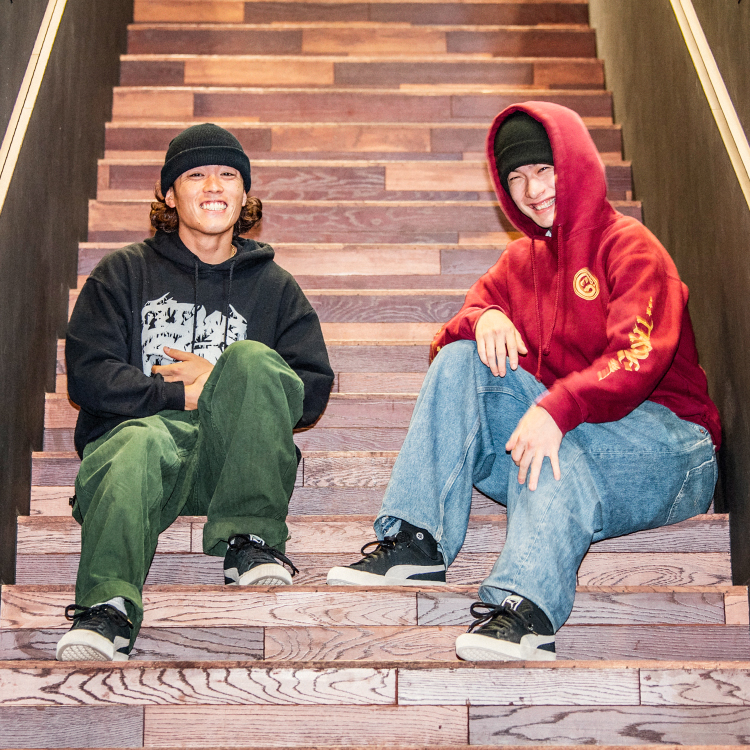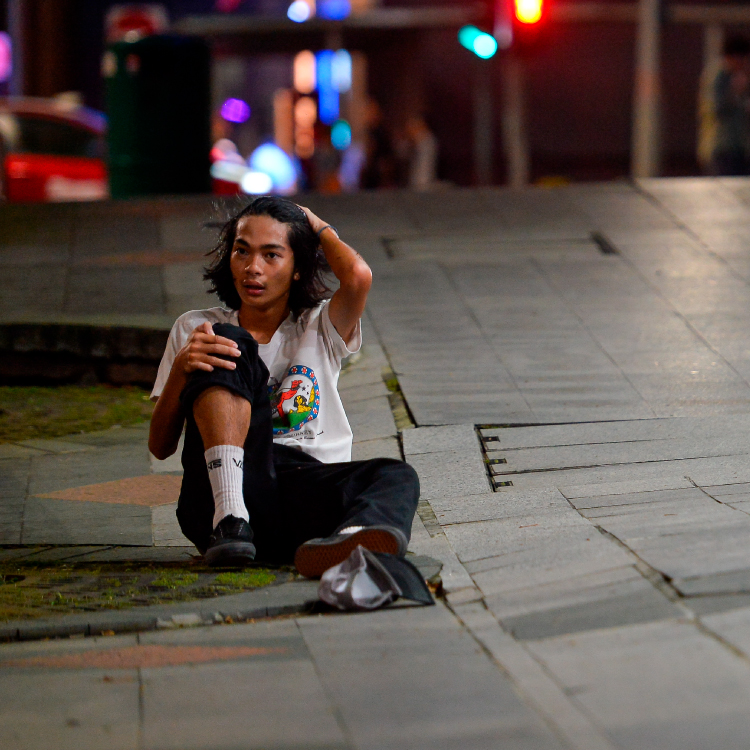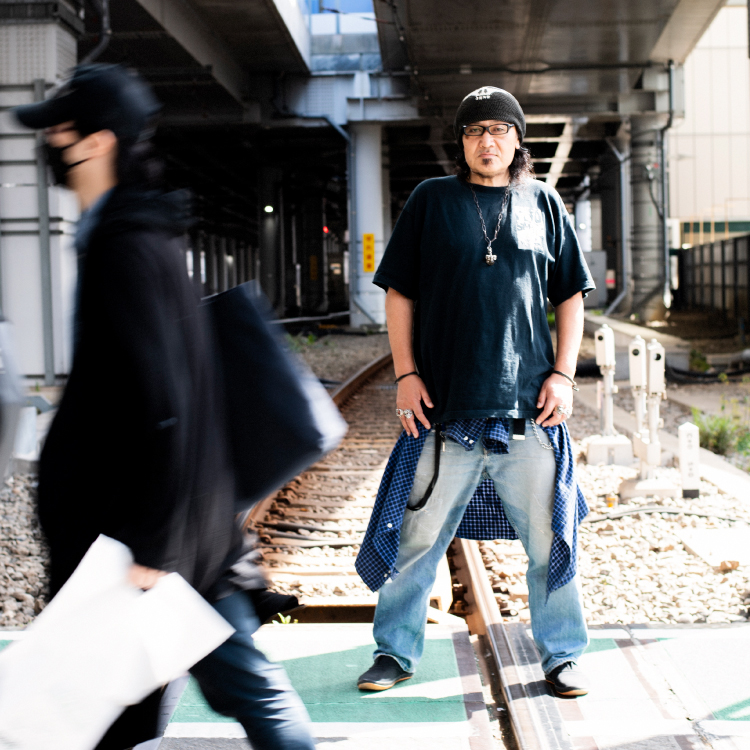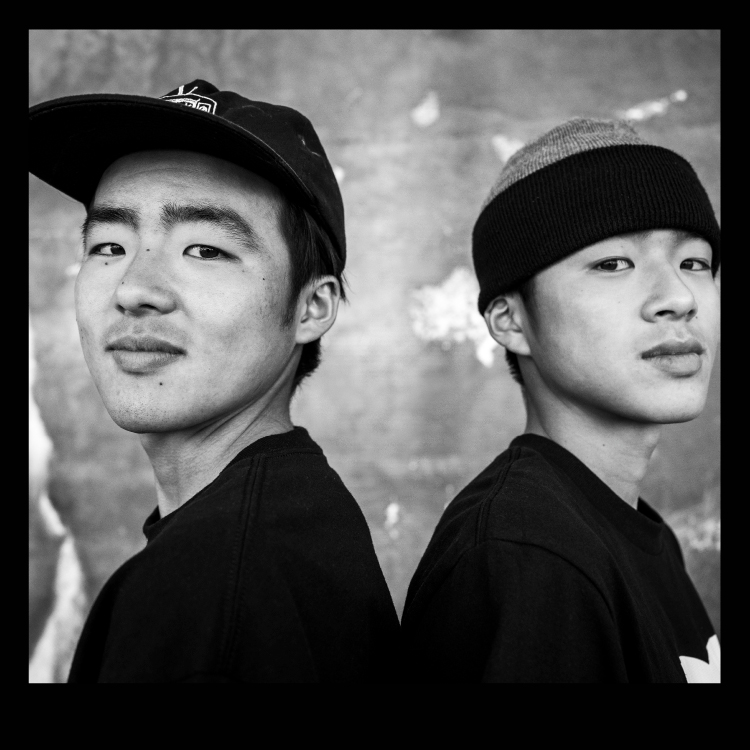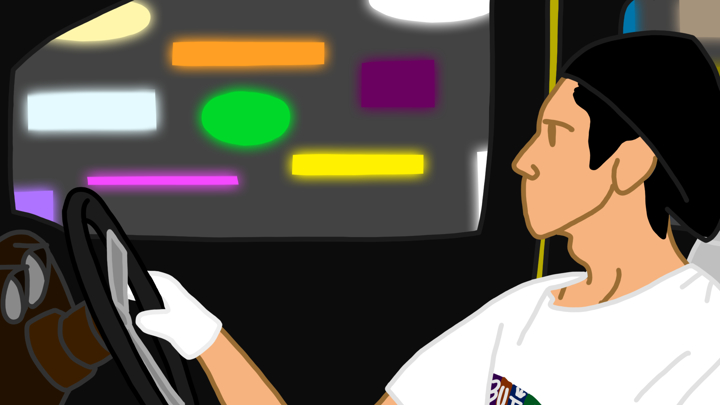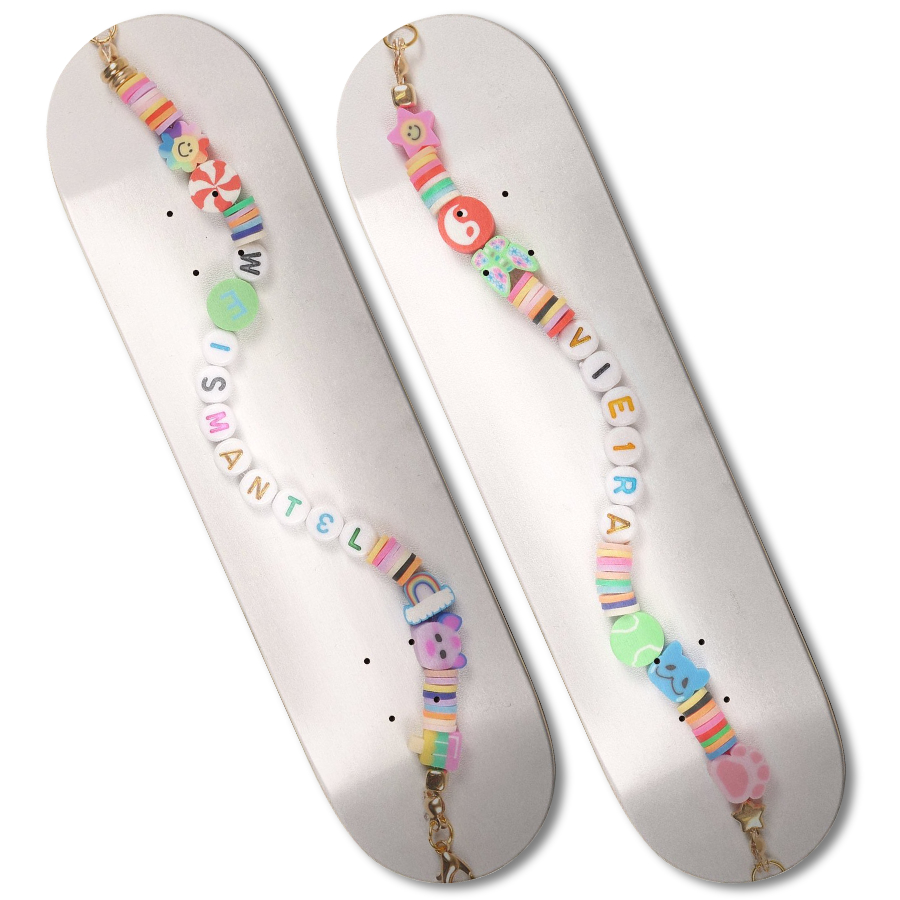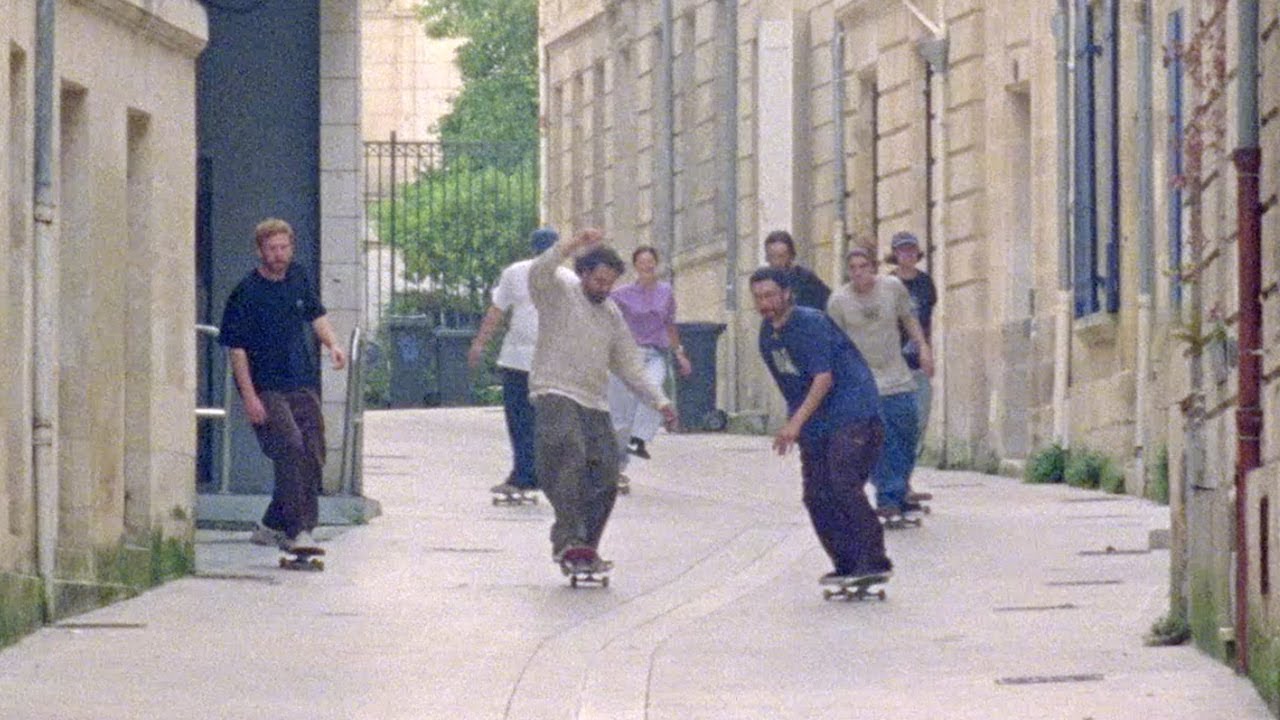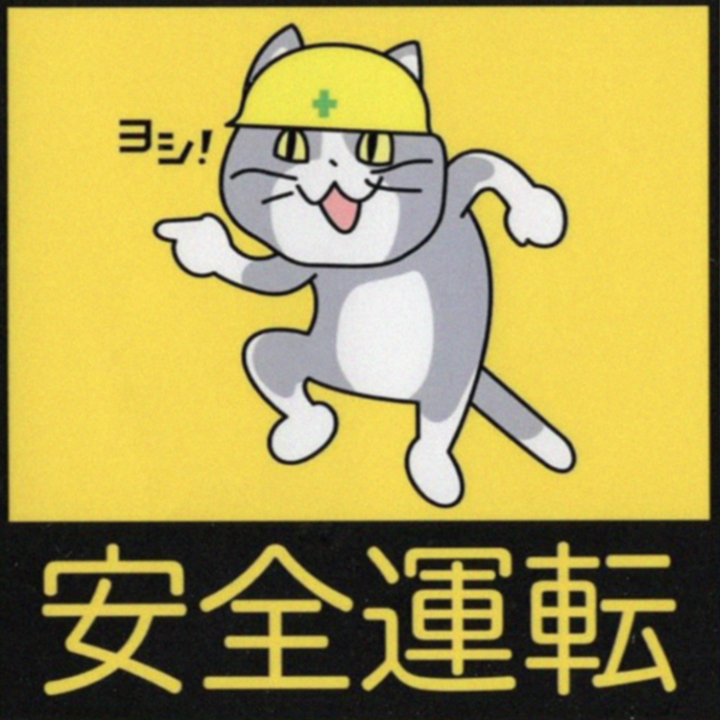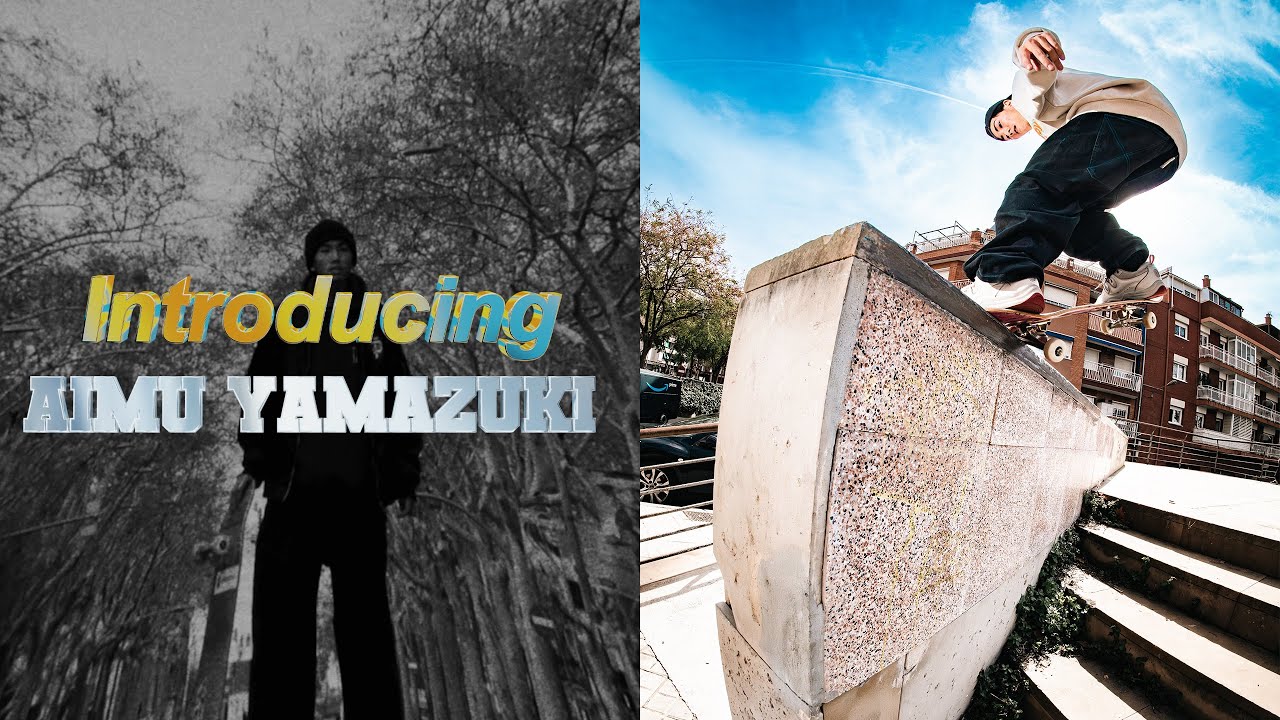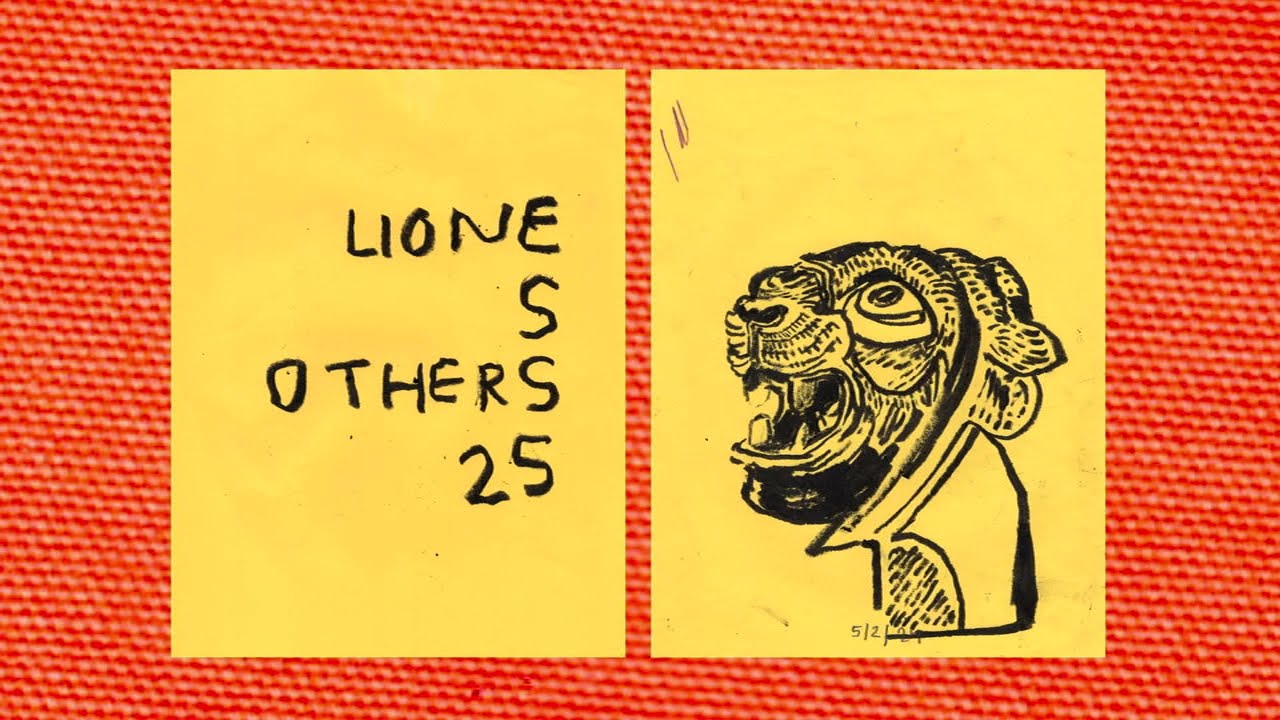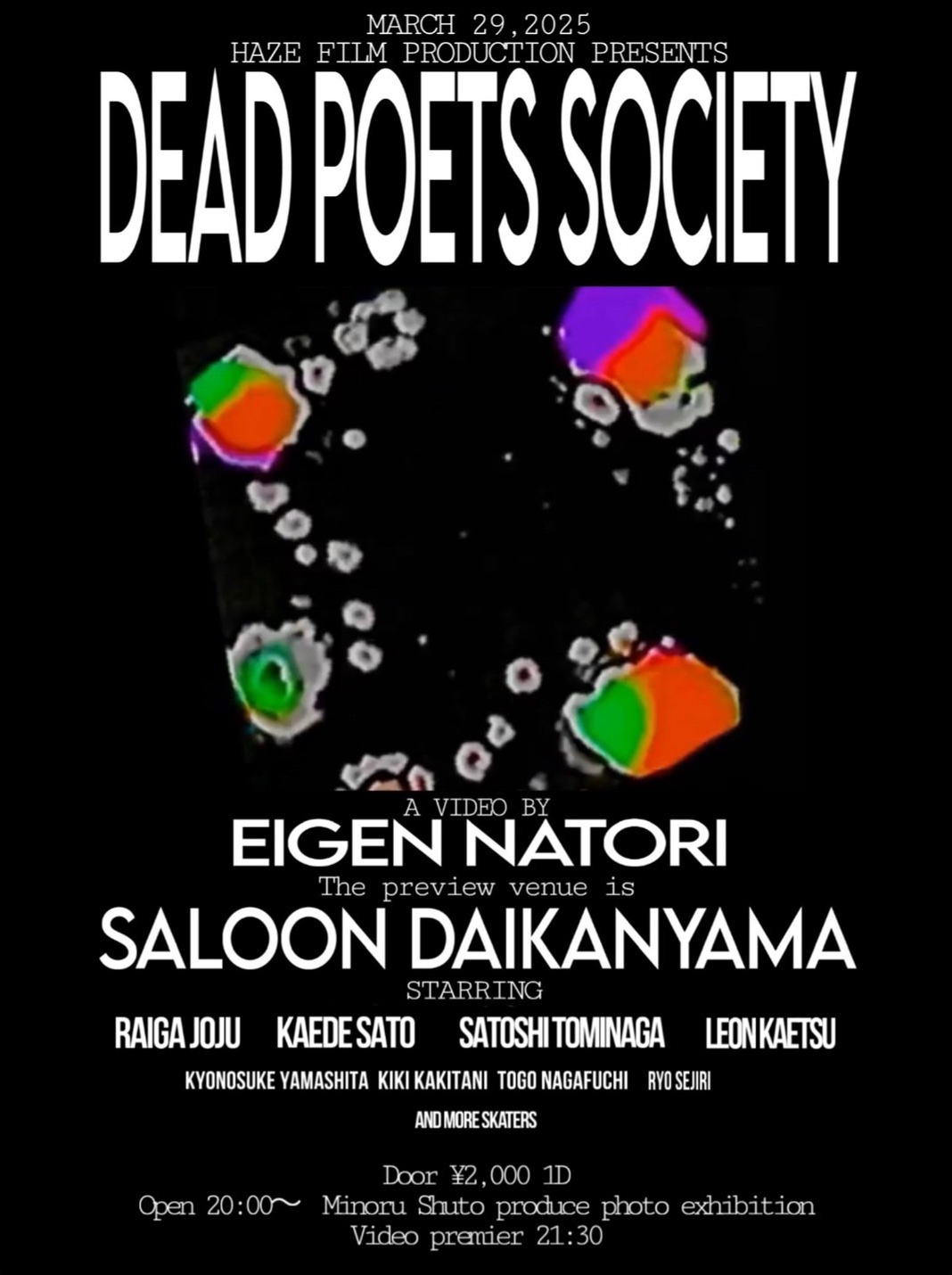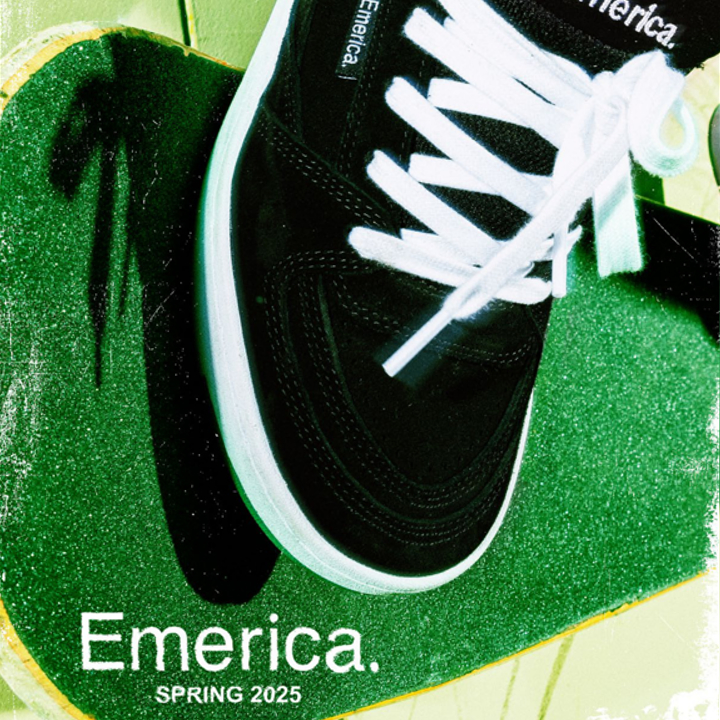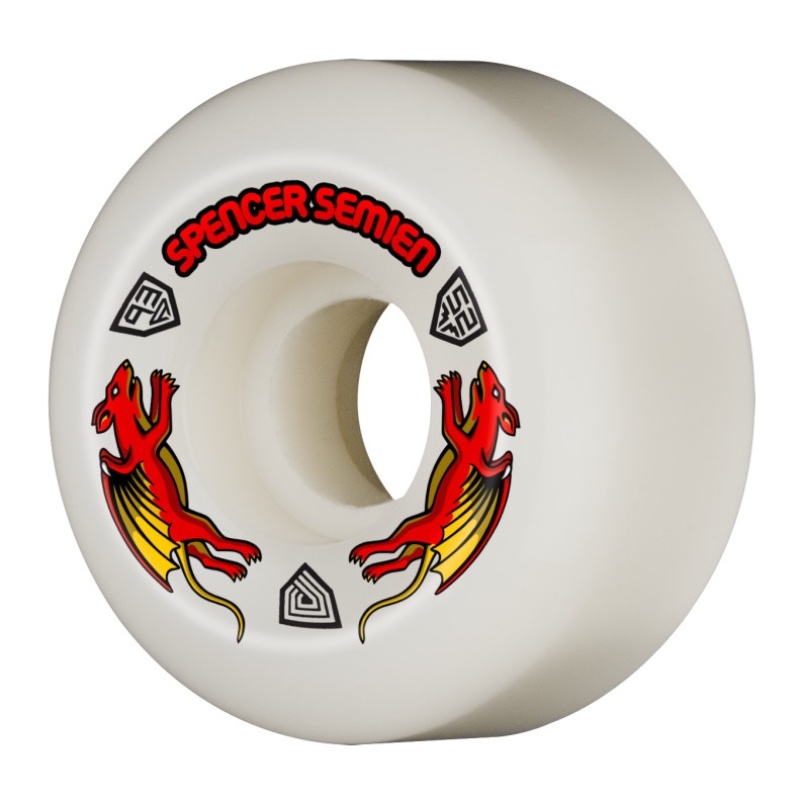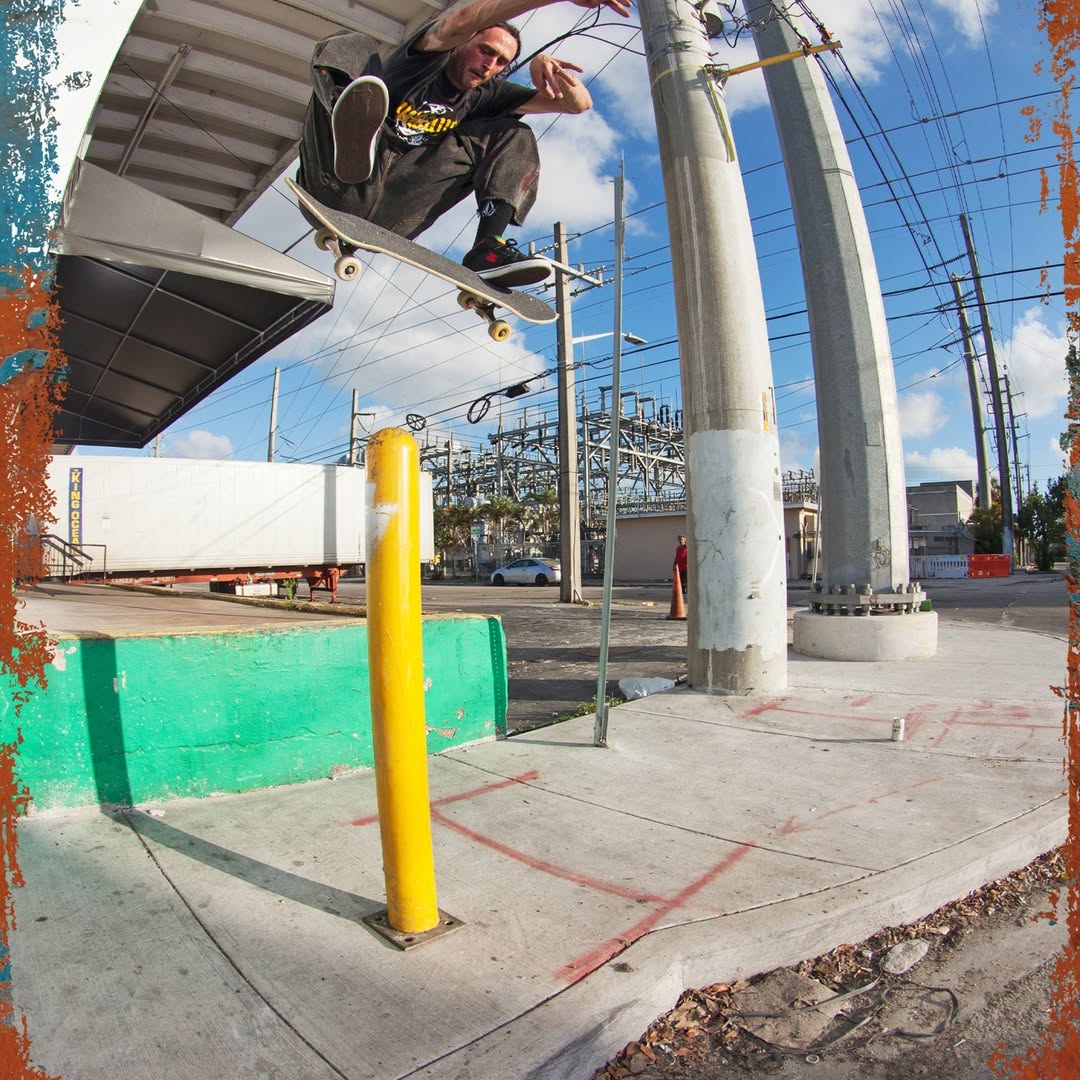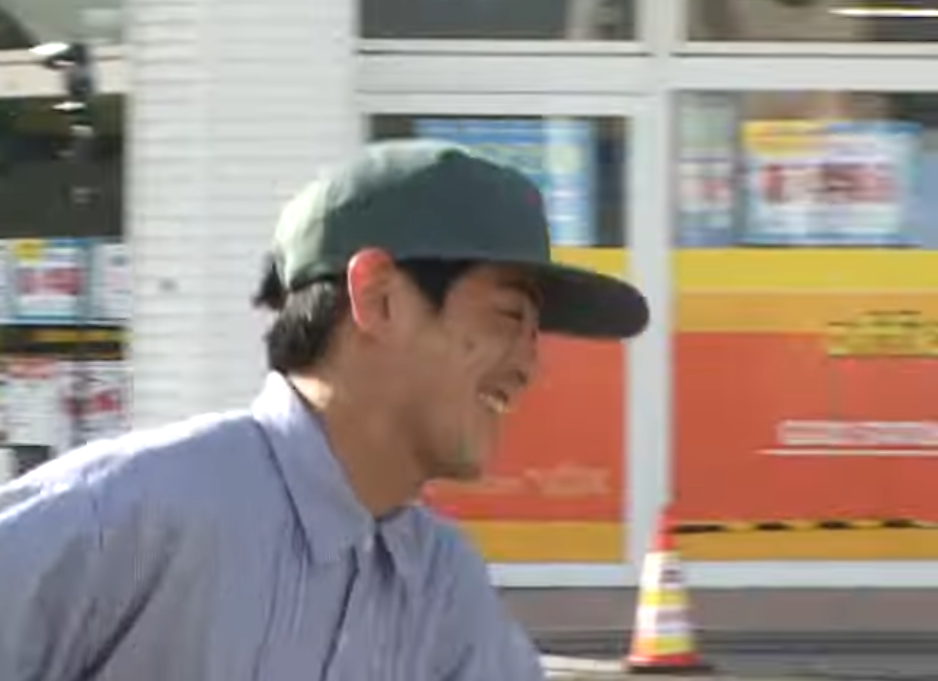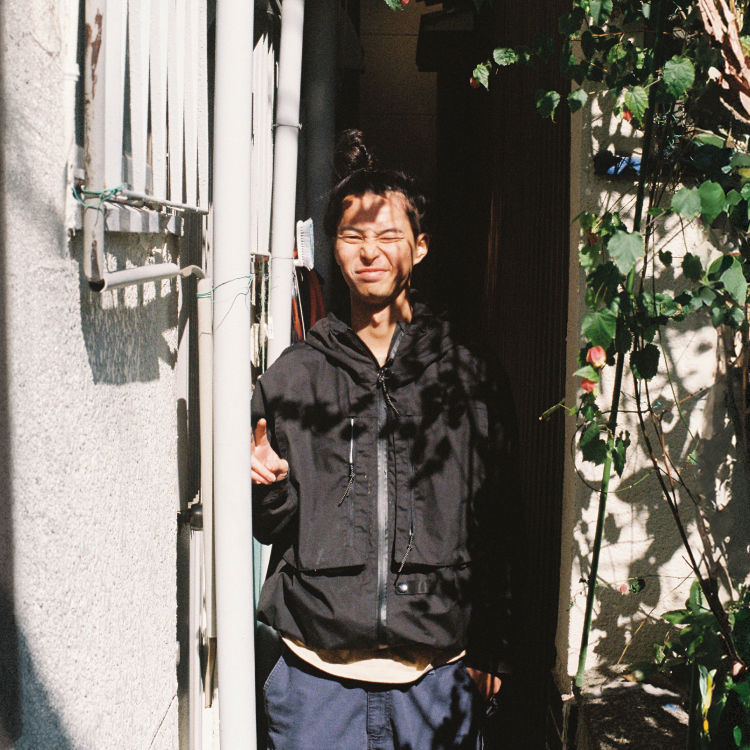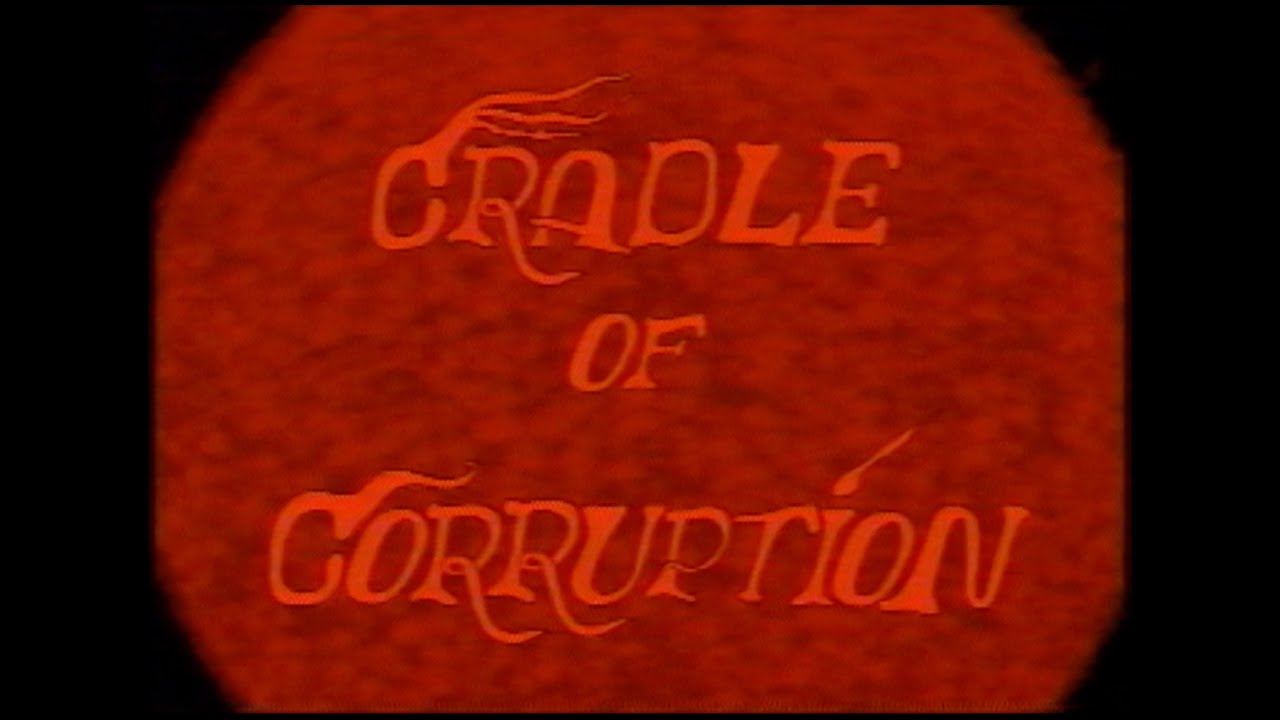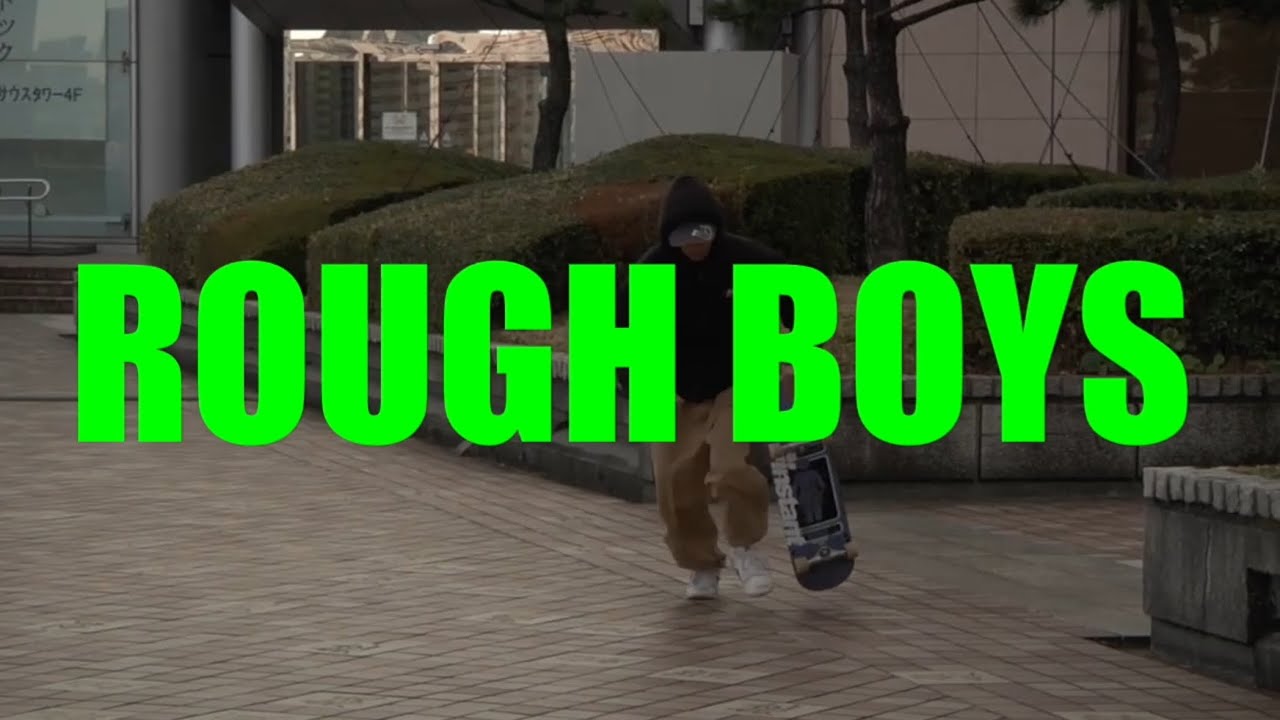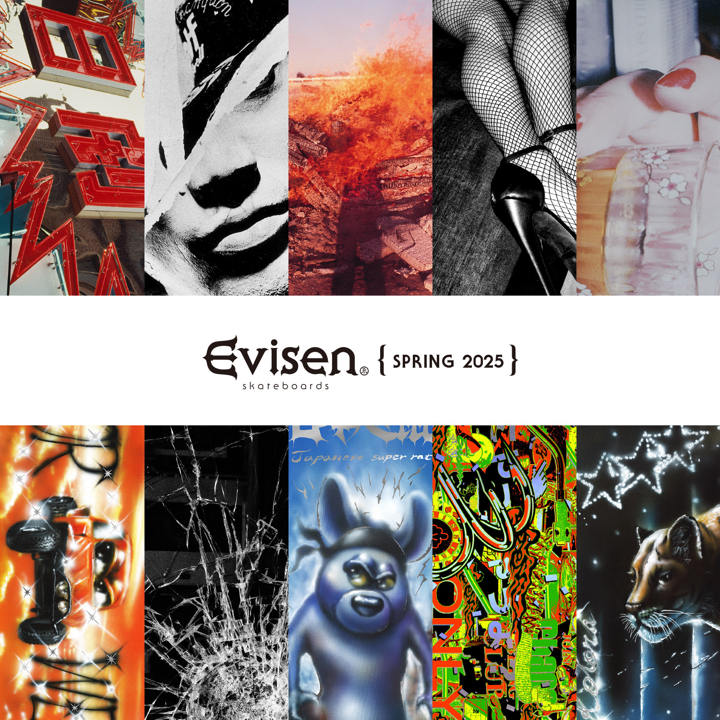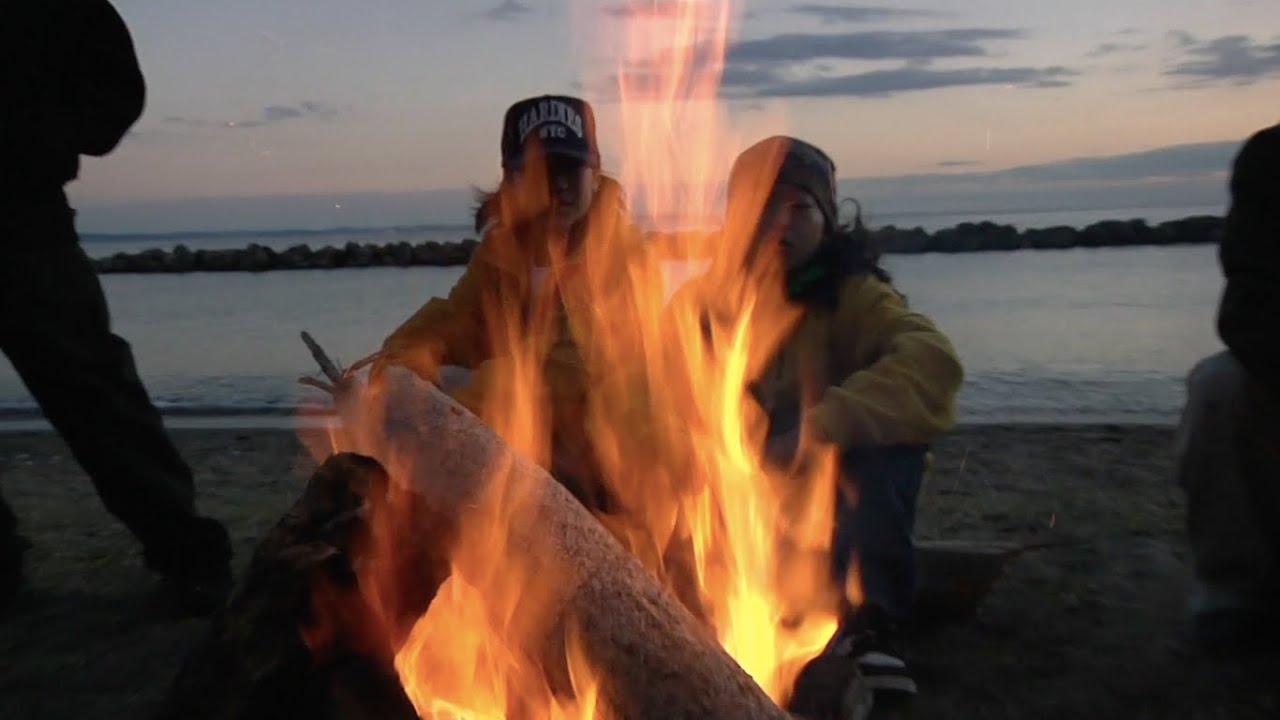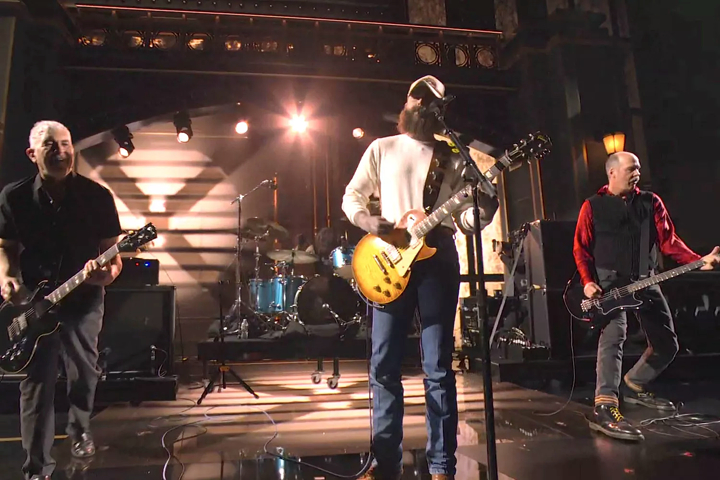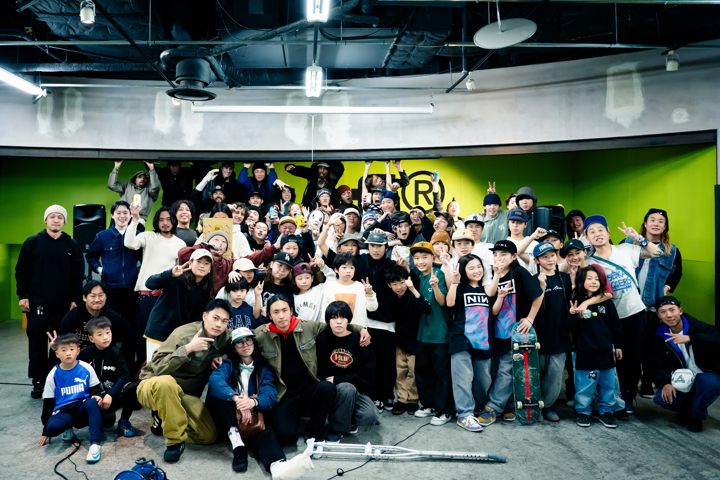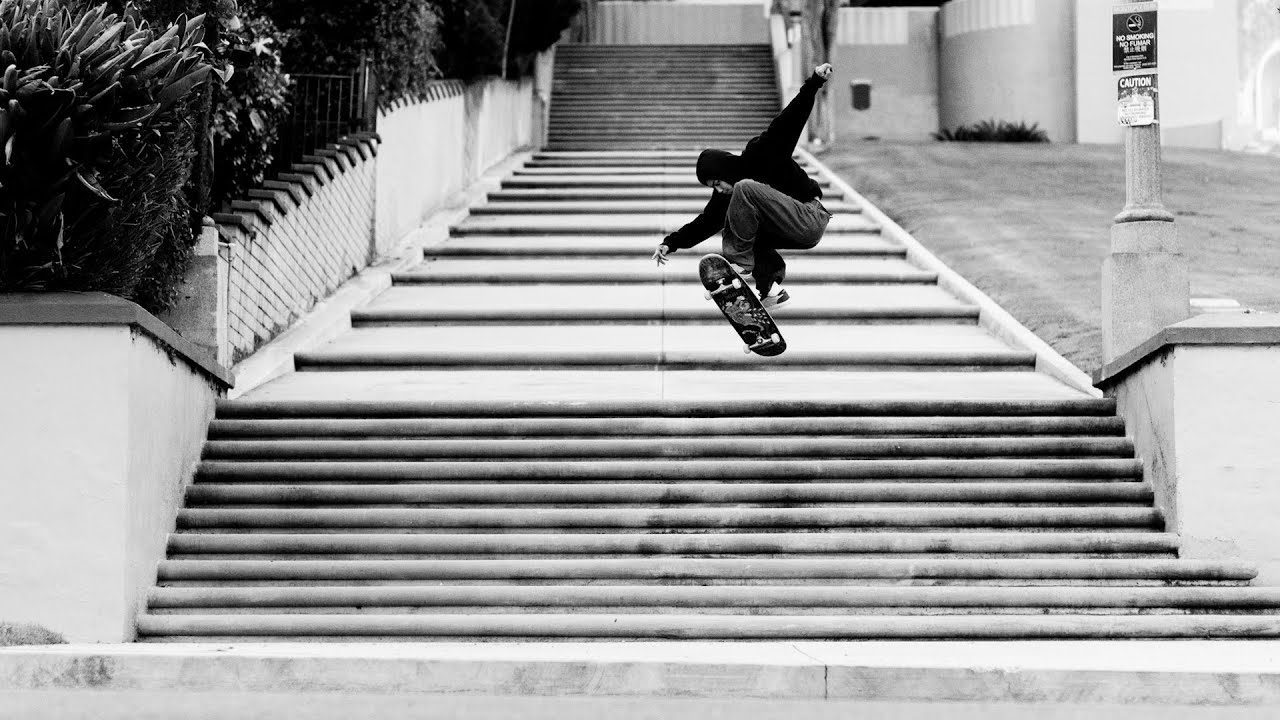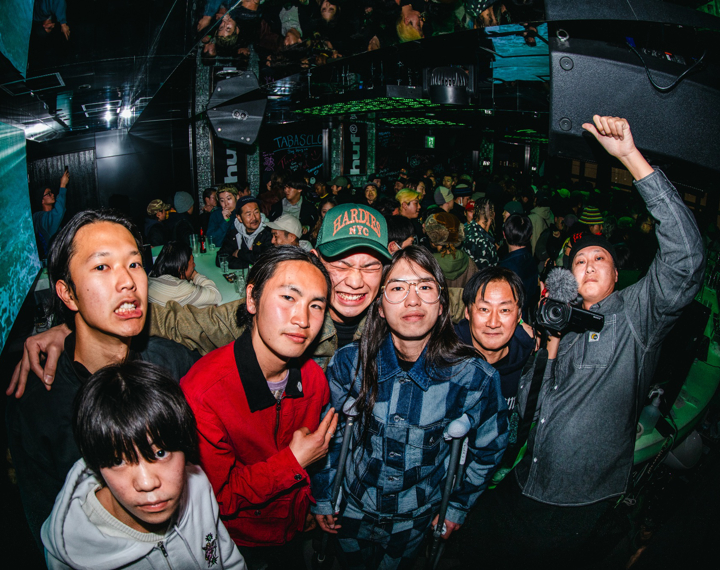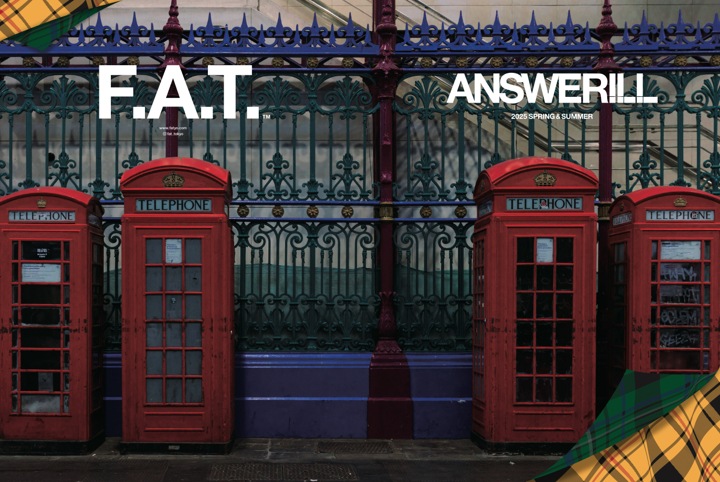Visual language with a four-letter alphabet. An expression of Illegal & Vandalism performed on the street.
──TECK (ENGLISH)

[ JAPANESE / ENGLISH ]
Photos courtesy of TECK
VHSMAG (V): Could you explain who you are and what you do?
TECK (T): My tag name is TECK and I'm a graffiti writer.
V: How did you get into graffiti in the first place?
T: I was a skater and I'd been looking at tags and stuff, but suddenly a throw up was drawn on a spot I skated everyday. It was a throwup of a guy named REI, who had a lot of tags around the spot. I was curious about REI's tag, so I did some research. It was way before we had social media. Then I saw this guy at the spot taking pictures. I talked to him and found out that he was REI. That's how I got interested in graffiti.
V: When was that?
T: I was in the second year of junior high school. My dad lived in Kanagawa and my mom lived in Tokyo. I used to go back and forth once a month, and on the way there I would see graffiti from the car. When I went to Kanagawa, I saw KANE, AMES, BASK, MAKE, and when I came back to Tokyo, I saw QP, EKYS, SPTE, SECT and so on. It was after I got to know REI and was introduced to graffiti, so I was like, "Wow." In a sense, it was the golden era from the late 90's to the early 2000's, when there was no social media and people who were really out on the streets were just barely uploading their photos on Flickr. I learned a lot from people who were actually doing graffiti while looking at those things. That's when I started using the name TECK.
V: You've been called TECK since junior high school. Where did the name come from?
T: I later found out that he was also a skater, but ECN had been bombing around Tokyo, mainly in Nakano. I wanted to use "E" and "C" too, since the line felt good. "T" is also a line I like. And the "K" at the end makes it look good. So it's about the design element and the letters in the name of a writer I respect.
V: What was it like when you were starting out?
T: I learned as I went along, but when you're doing graffiti, you start to meet other writers randomly at shops. You get information from them, and you start going out writing together. I think it's similar to skating. You meet skaters at a spot and your network expands. Also you look at the city in a certain way. Even when you're walking around, you're looking for spots. So I think it's very similar to skating.
V: How did you get to the current style?
T: In my case, it's the quantity. I was conscious of the quantity and range of where I do my thing. At first I was bombing everywhere, but I can't just keep doing it in my neighborhood. So I started going to places away from my hometown. I guess it's the same with skating, but with graffiti there's a lot more trouble. That's how I started going to new places on my own. Then I realized that the place I'm bombing had expanded tremendously.
V: Sky is the limit.
T: But rather than going out to bomb, I find myself naturally bombing more where I'm hanging out. Rather than saying "I have to go bomb" or "I'm going to go bomb," my style is more like "I'm bombing while I'm having fun." I don't really go on a mission. It's more organic.
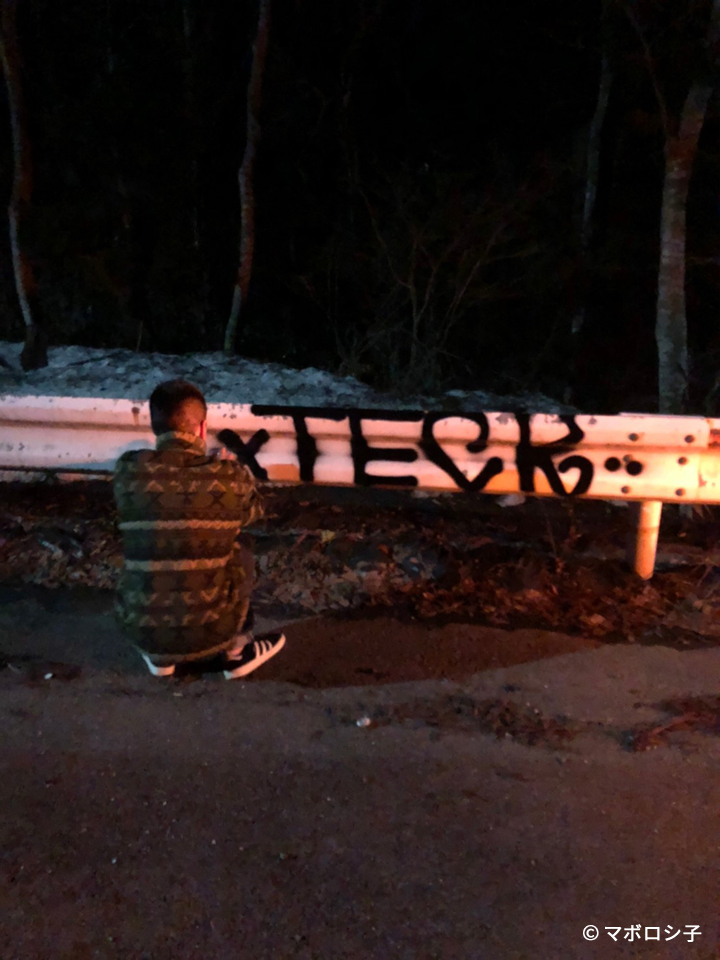
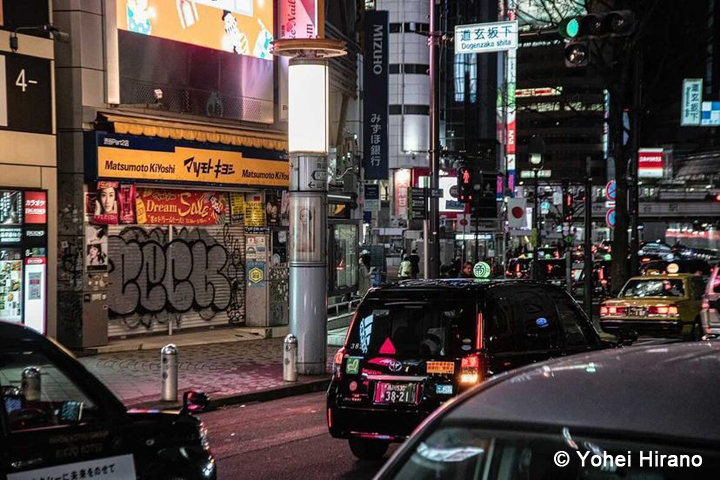
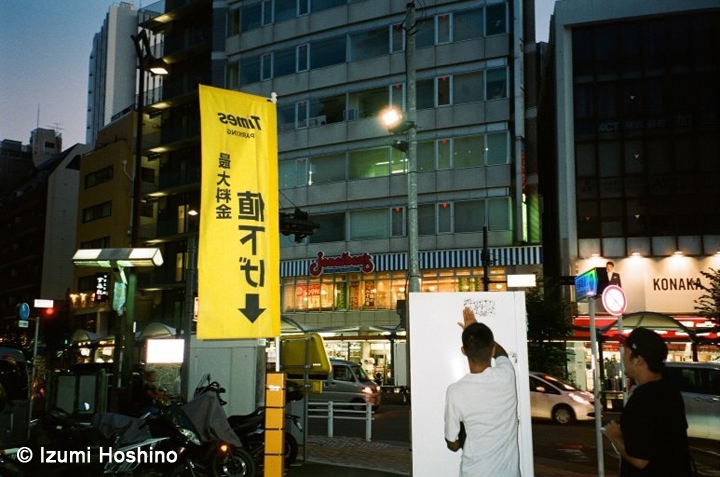
V: You mentioned some names earlier, but who were you influenced by?
T: I'm influenced by everyone who's doing throw ups in Tokyo like QP, EKYS, VIN, SPTE, ECN... Also KANE, AMES, BASK, MAKE in Kanagawa. I've watched their works come and go. They appear and disappear. That kind of feeling, their work feels alive. People who keep moving in the city. I'm also influenced by the vibes of street skaters who are charging the city too.
V: Is there a crew you belong to?
T: Well, it's not really a crew, but I hang out with my buddies who write TPA. That's the main thing I'm pushing.
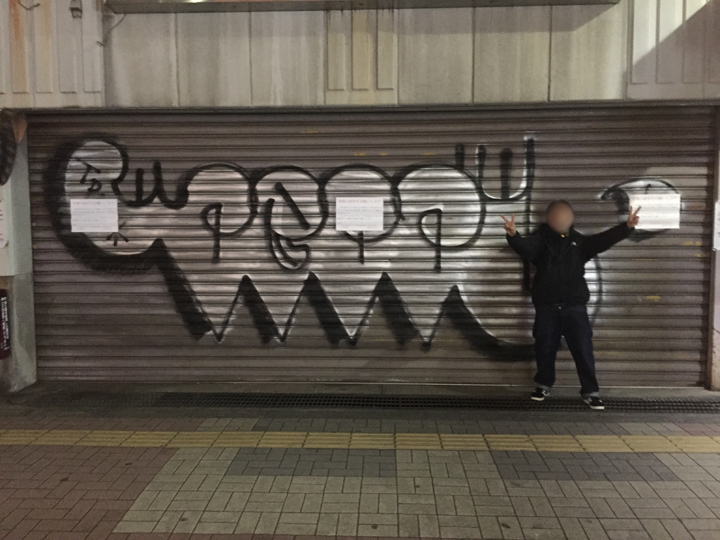
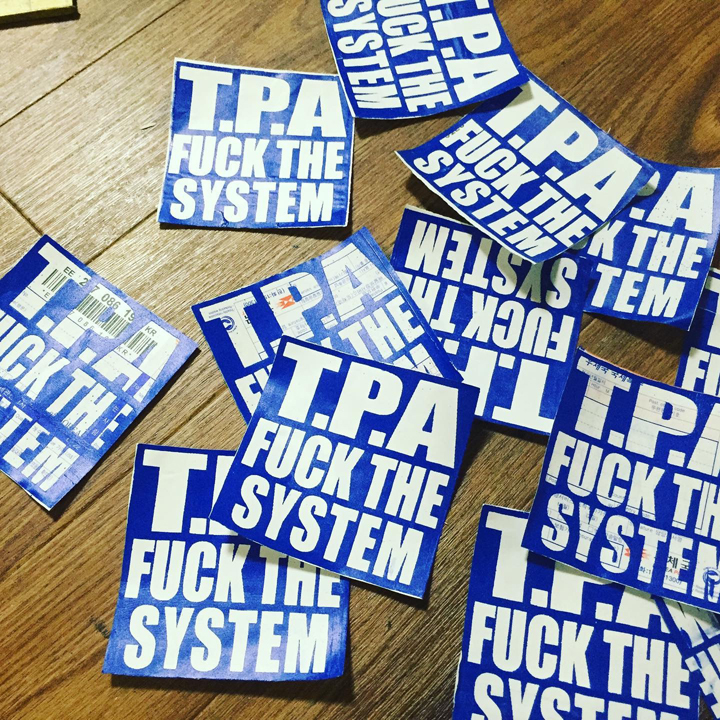
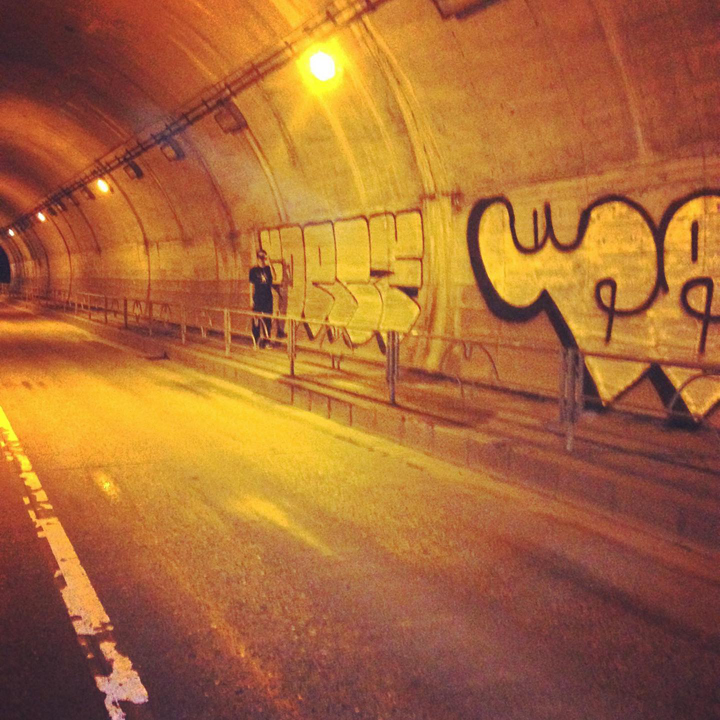
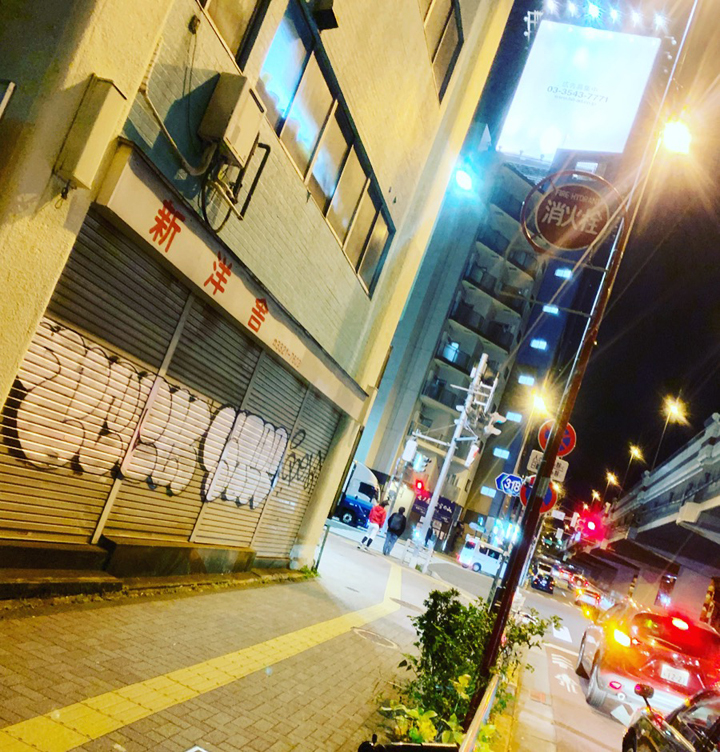
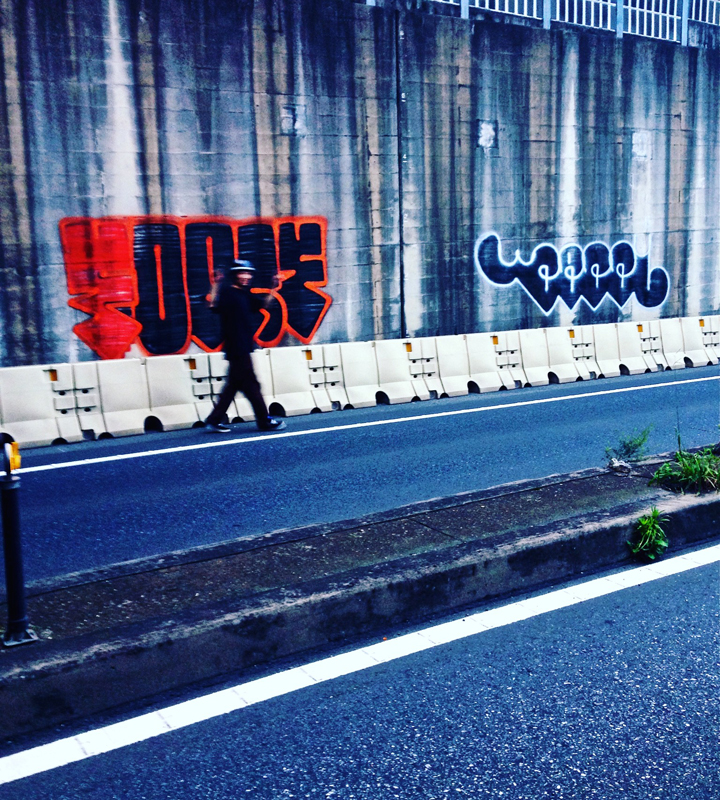
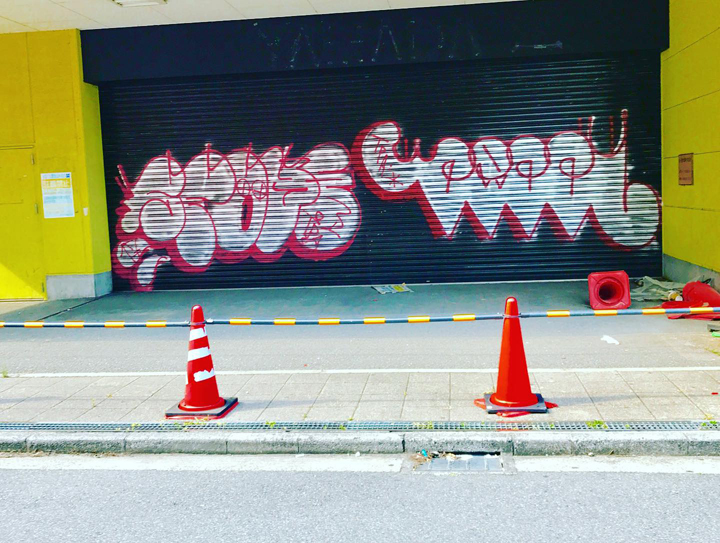
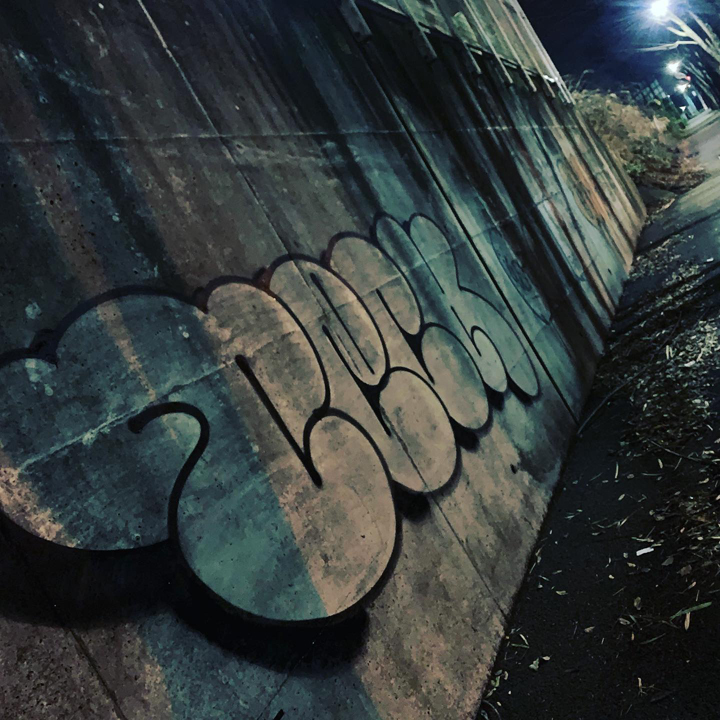
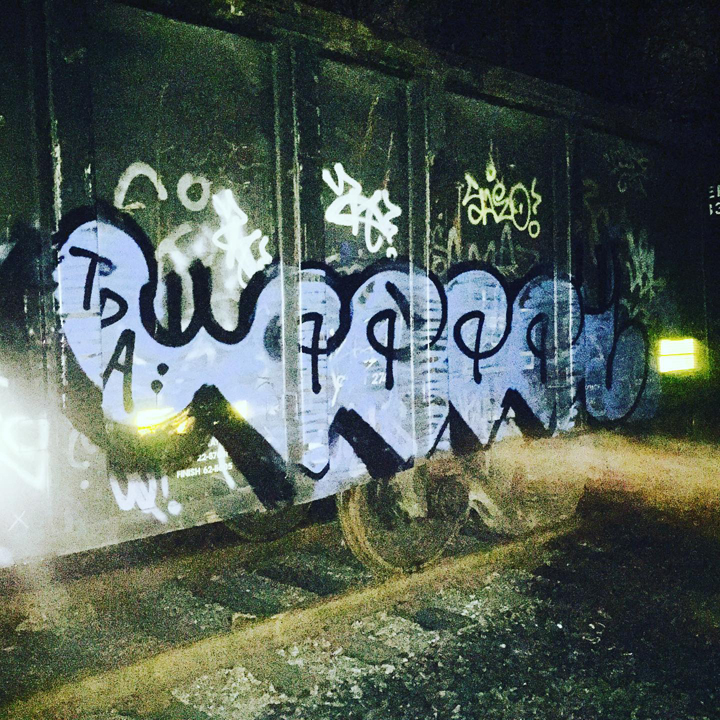
V: Graffiti is pretty tough, right? There's probably more risk of being reported than skating, and there's also the risk of getting caught by the police. What do you have to watch out for when you're bombing?
T: I think it's the same with skating, but you just have to go for it. So it's important to have a sense of when to pull back. No matter how fun it is, you shouldn't overdo it. It's whether you have the sense to pull back or not, that determines whether you can continue doing graffiti for a long time. People who don't have a good sense of when to pull back get caught. It's the same with skating and it's important to never give up, but you can get injured as a result. But if you don't do it, you won't get the result you want. It's like trial and error every day.
V: To have a good sense of when to pull back, you have to be experienced.
T: You're right. You have to follow your intuition, and you need to observe your surroundings. It's also important to have a sense of how to charge. I can't bomb in the city unless I know whoever is watching will do no harm. If it's a girl, I might just say, "Don't tell anyone," and it'll be okay. But even if a guy looks like a skater, he might be a cop. It's important to have the sense to recognize such things. Basically, I just blend into the city. I wear normal clothes and try to be low-key. But when you're doing graffiti, I feel like time stops for a moment. Even in Shibuya or Shinjuku, there's a time when you can go for it. I'll be like, "This is it!" It's all about finding the right timing and the right spot. When I'm bombing over other people's tags, I check who's tag is there in the daytime beforehand. It's not good to bomb over the tag of a person you don't want to deal with or someone who passed away. According to graffiti rules, it's okay to do a throw up on top of other people's tags, but I want to keep the tags of the people I respect. If it's a wack throw up, I'll paint over it.
V: Have you ever gotten in any sketchy situation?
T: I went to this club and I was on the guest list. The name on the list was TECK. And the manager of the club was looking for me... I was dancing in the front row getting excited about the party, and the manager came up to me and he was like, "So you're TECK. I was looking for you." He took me away (laughs). But all the things he was saying were right in every way (laughs). I mean, because of the nature of graffiti, you paint on other people's things... In other words, I wasn't aware of when to pull back at the time. Sometimes there are people who call me "TECK" at a place like that. That's how you get caught. I would apologize to them, but... apologizing wouldn't help (laughs). In the end, he forgave me and we worked it out, but it was a close call. That's just a part of the trouble, and there's a lot of things I can't say here. Whether it's graffiti or skating, it's important to determine things. Especially in the case of graffiti, it can turn into an issue of money and violence. There are people whose lives have been changed because of misjudgment.
V: That sounds scary..
T: Nowadays, skating and rapping are becoming popular, and more and more people are becoming light. It's the same with graffiti; you can see all kinds of graffiti on Instagram, and the skill level is getting higher, but the understanding of the culture is getting lighter. Whether it resonates with you or not, maybe skating and rapping can be done lightly, but if you do graffiti lightly, there's too much you need to pay for. If you can't take responsibility for your own actions, I think it's better not to take a spray can and paint on a wall. It's a crime, and it's an expression within that context. There are a lot of serious people in this world, so it's better to keep your cool before you do something lightly. Graffiti is not a painting.
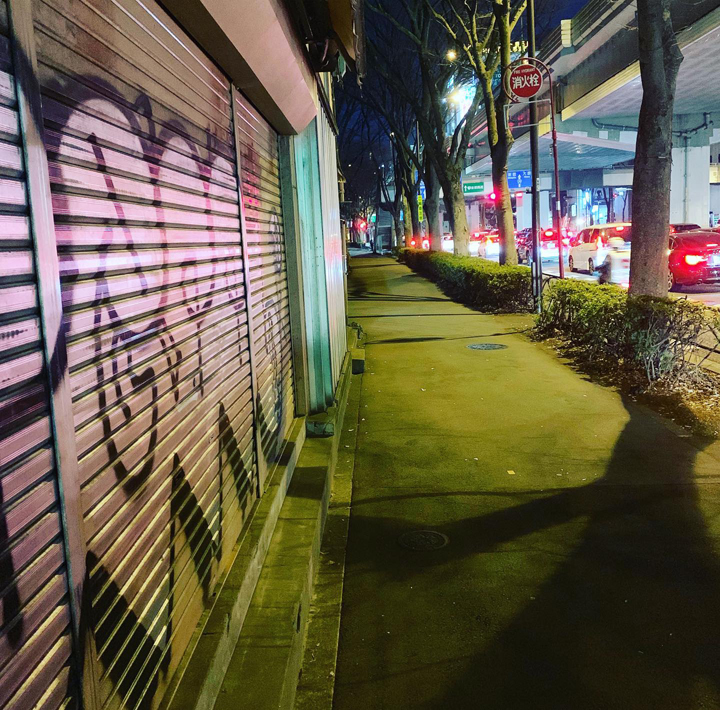
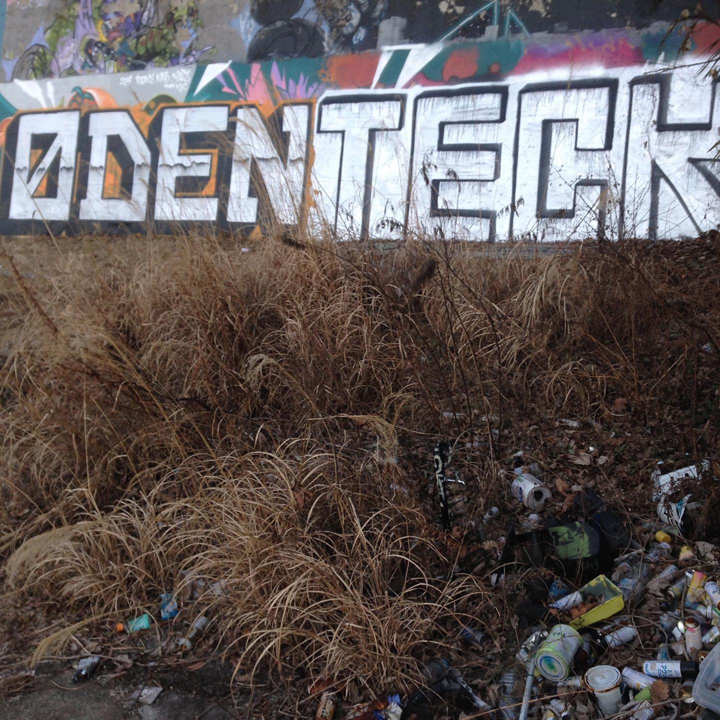
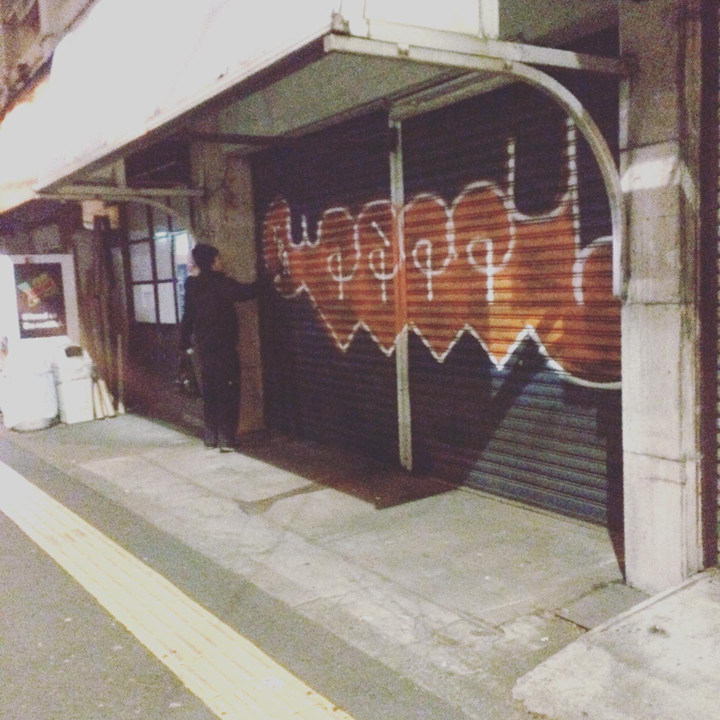
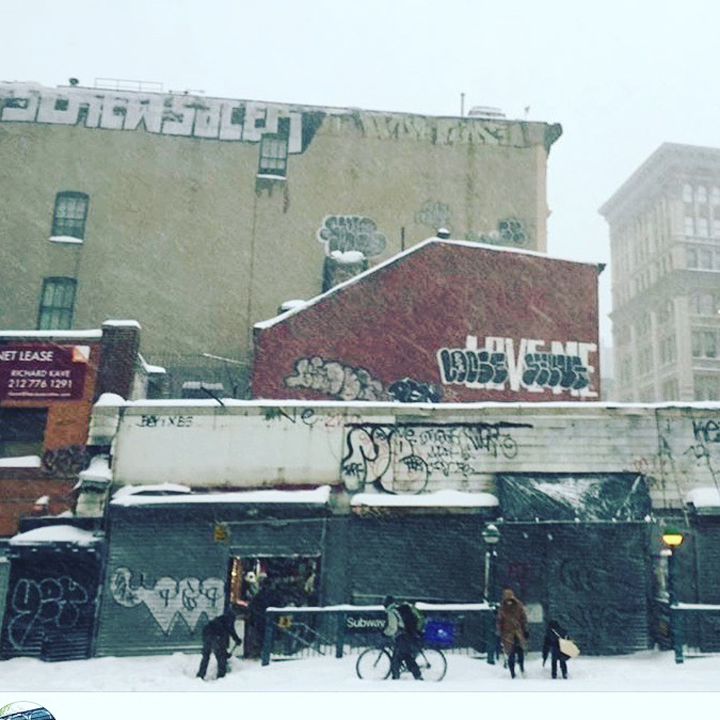
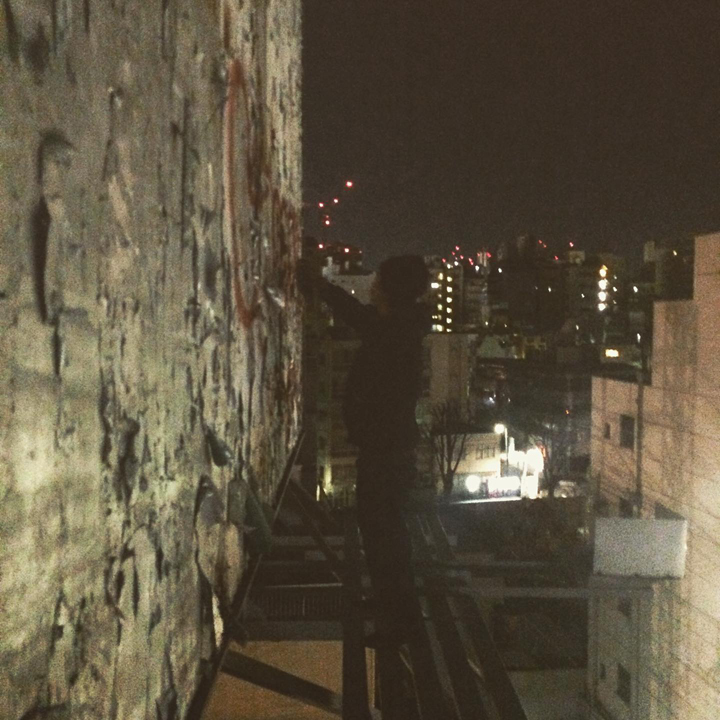
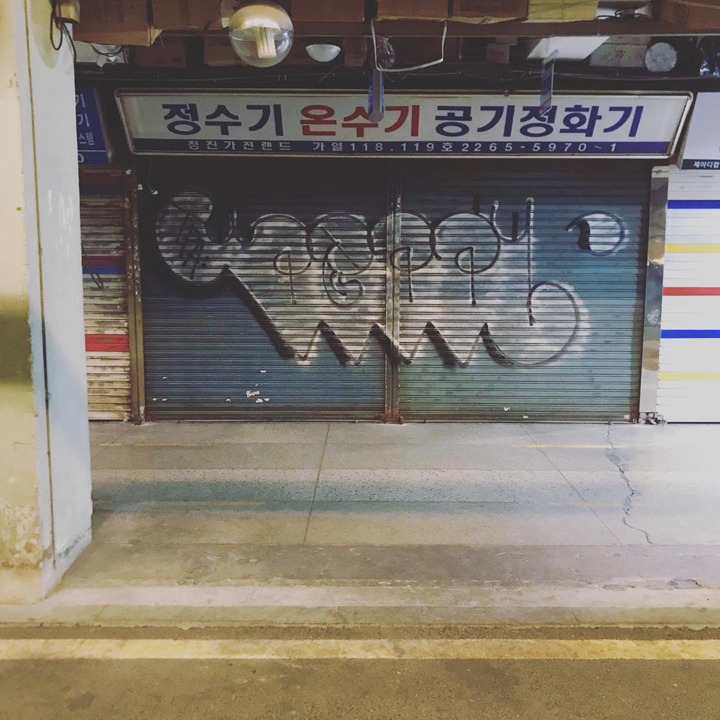
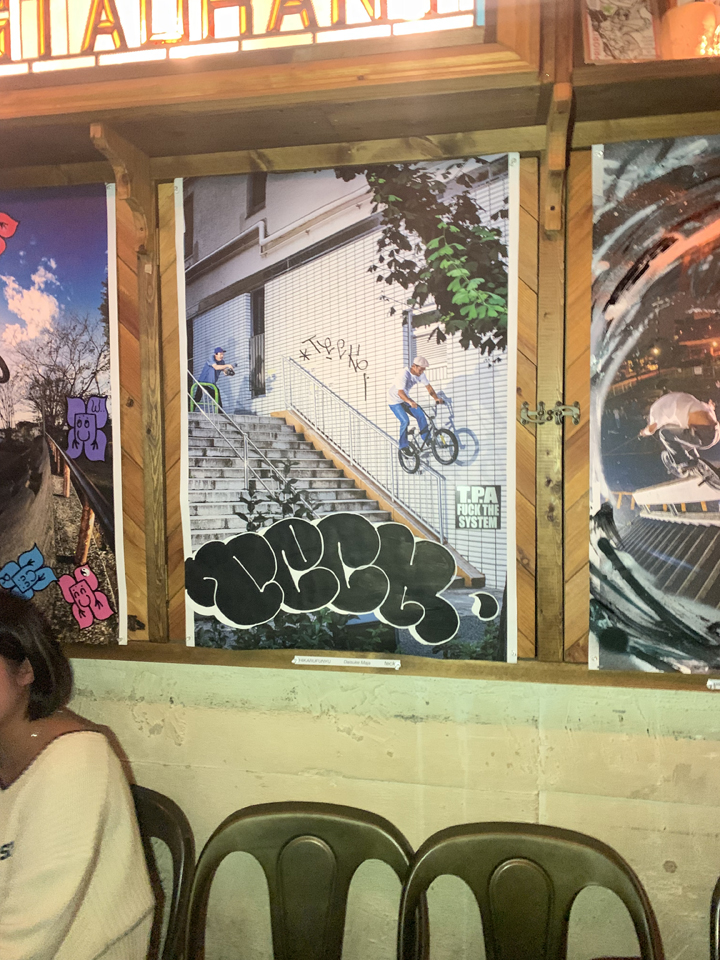
V: So what are the taboos in graffiti?
T: There is a place called piece spot. It's not a place where you can repeatedly bomb and be erased in the city like we do, but a place where traditionally big names can take their time to do their thing. There are still such spots all over Japan. When I see people who don't even do graffiti carelessly taking pictures of those places, posting them on Instagram with location information, I feel like they really don't understand. In this age where anyone can send out messages, it's important to have morals. Tagging a writer's name on a private account, for example. There are conflicts in graffiti, so uploading content that encourages such conflicts on social media. Exposing spots. Stop doing that. It's like when skating becomes popular and the number of skaters with bad manners increases, and the spots get blown. That's what happens when something becomes too popular. I know it's still evolving, but that's why I want to do it right.
V: In the case of skating, you can get a salary from sponsors and even aim for the Olympics. If you win a contest, you get a cash prize. In other words, even if things get more restricted due to the popularity, you can expect an environment where you can make money. In the case of graffiti, are there any benefits to be gained from the increase in population?
T: Yes, there is. There are ways to use your experience and props as a writer to make money. Like having a solo exhibition, being commissioned to do a design, or opening a shop. Even if you can get to that point as a writer, you still have to determine what to do. Making a career out of it is like selling yourself. It's fine if you can do whatever you want and make money as a result, but if it's a job, there will be times when you have to give in. There are people who do it their whole lives without getting paid, and there are people who make it their job because they want the money. There are also people who are struggling to get there. I've been asked to do design work, but I've always said, "I don't need the money, let me do what I want." So if you ask me if graffiti can make money, my answer would be, "It depends on how you do it." But that's not what I want to do right now, and if I wanted to make money, I wouldn't be doing it this way.
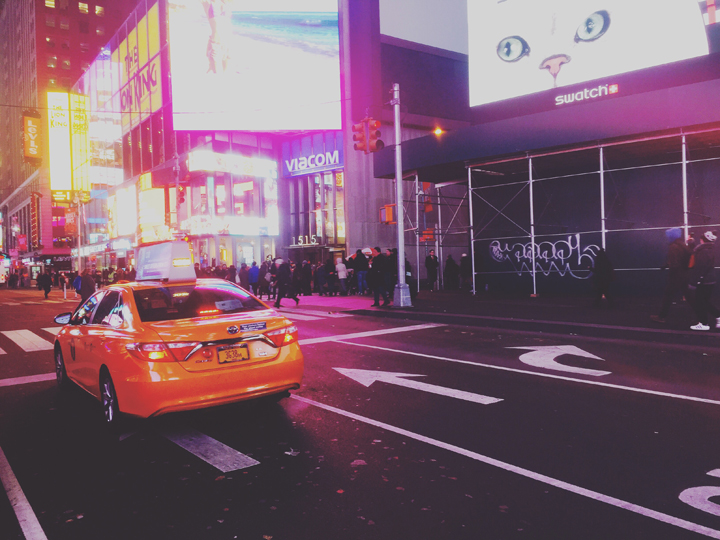
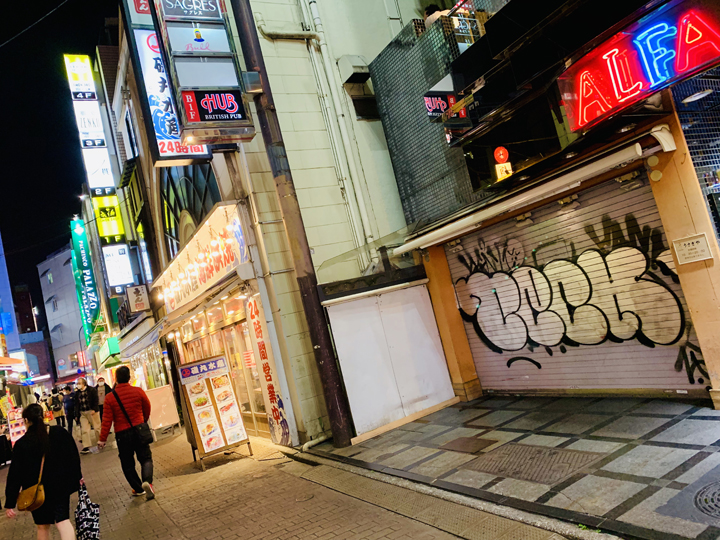
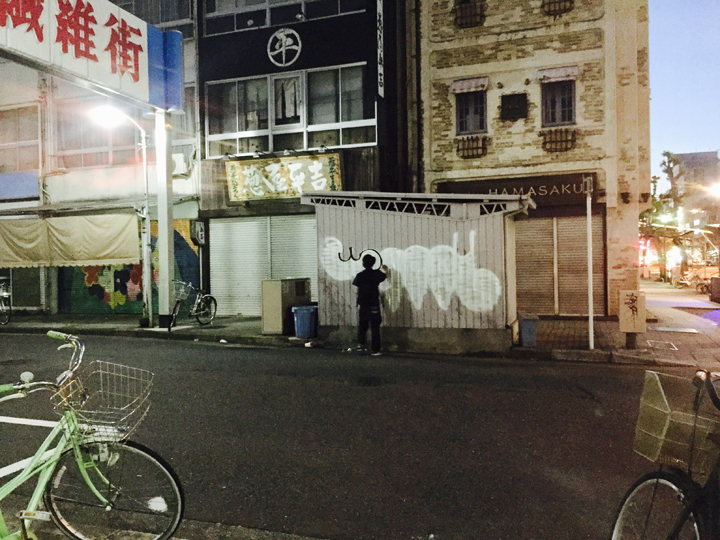
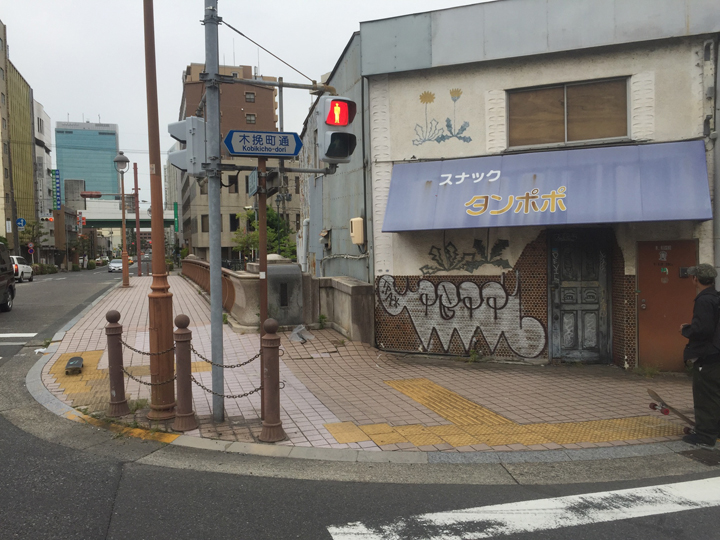
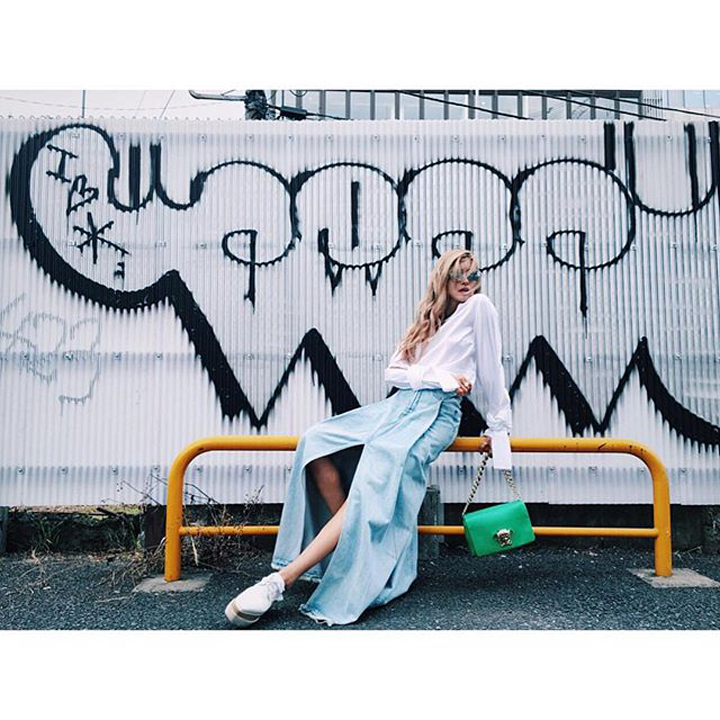
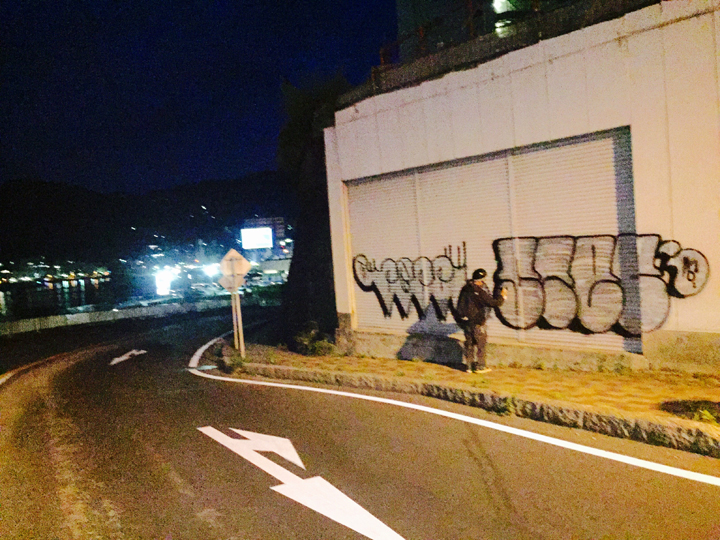
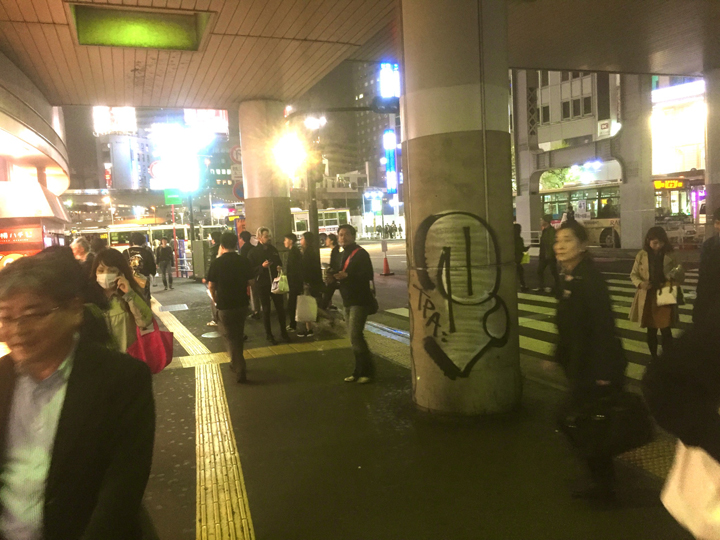
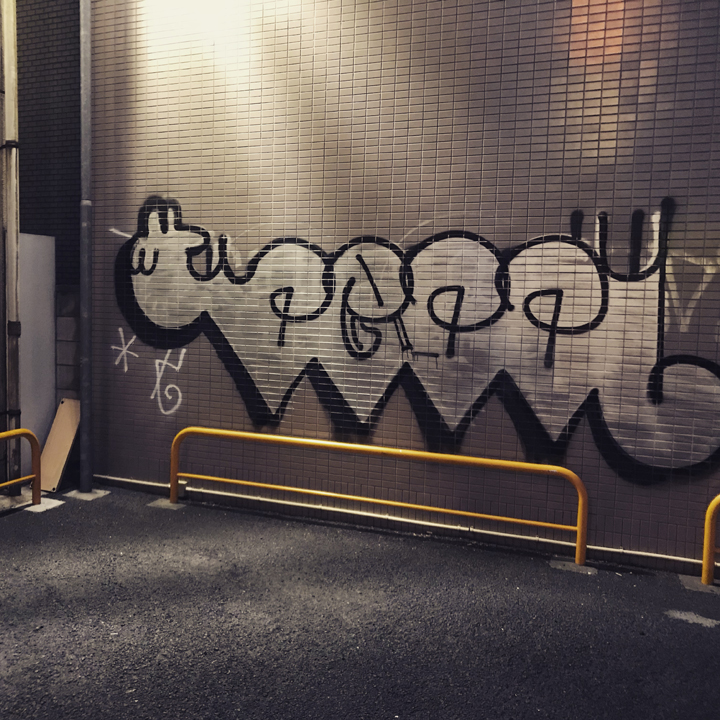
V: I think props are important in graffiti, what are your personal standards for a good writer?
T: People who are able to express their personality and thoughts through tags and throw ups. People who are true to themselves. People who have vibes coming out of their pieces are dope. It's just like skating, you don't necessarily have to do anything difficult. Just a simple ollie works for certain people. But that's only possible when that person does it. It's about the form and the style. It's not just about skill, it's about dropping the things in the street that tell the way you live your life. It's not just about being good or bad. There's something about the work of a good writer.
V: If you had to describe your style in words, what would it be?
T: I think it's dope to make people think, "Wow, that's dope!" by doing something simple. That's why I only use silver and black, and do tags and throw ups that don't require a lot of money. The most difficult thing to do is to impress people with something very simple. If you spend a lot of money, you can make something colorful and beautiful, but I try to keep it simple and make it dope. It's like, "All I need is an ollie and a kickflip (laughs)."
V: So you've been all about graffiti since you were in junior high school.
T: No, actually I got into video games once in high school. I became the best in Japan at a video game (laughs). It was "Tekken". I became a pro. I became so famous that there's not a single person in the game world who doesn't know who I am. Even now, you can watch my play on YouTube. But games are created by someone else, so there are limits. For example, if the series changes, you have to start all over again. In addition, you can't be creative because there is a fixed frame. And the series keeps getting newer and newer, so I was like, "I can't do this anymore (laughs)." I did that for four or five years. So I was more of a gamer than a writer during that period.
V: You really get into things, huh (laughs)? Then why did you dare to choose graffiti, which is something illegal? It seems like it's hard to maintain a good mentality because there's always a risk....
T: If you think about it too much, you won't be able to continue. That's why I keep the idea of "illegal" in the back of my mind and keep doing it. I'm just doing it because it's fun. I don't really feel that I don't want to do something because it's illegal or dangerous. On the contrary, if I don't think it's fun, I won't do it. When that moment comes, I'll probably find something else that I enjoy and get absorbed in it. And I don't need the money. It's like a child playing tag. Even if it's meaningless, I do it because it's really fun.
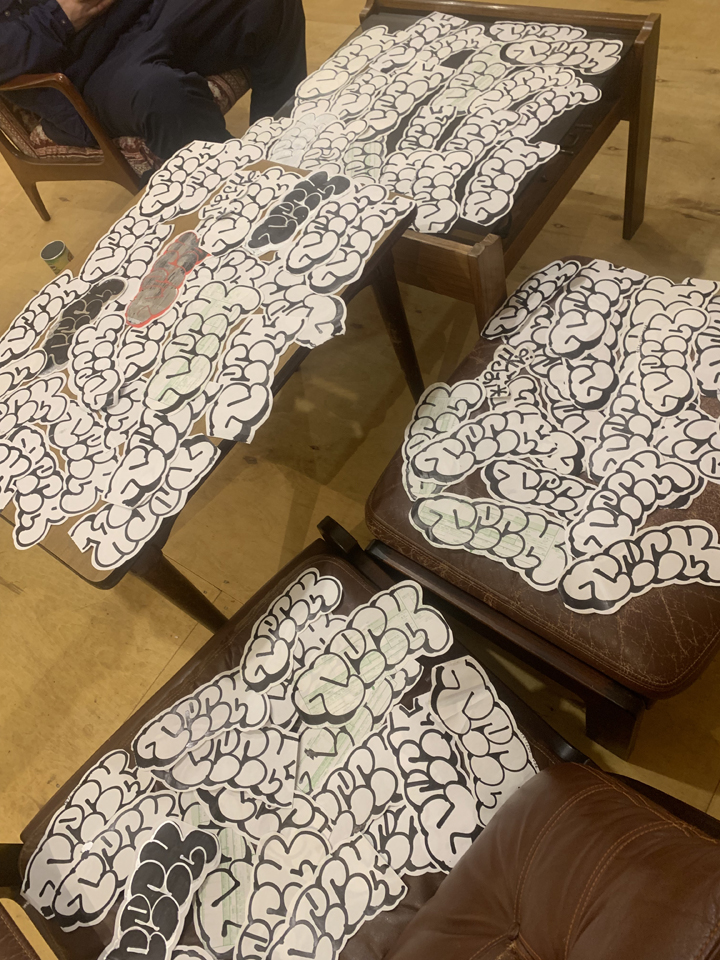
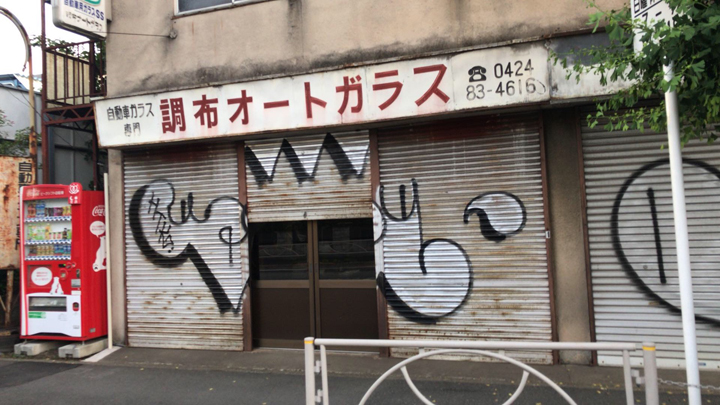
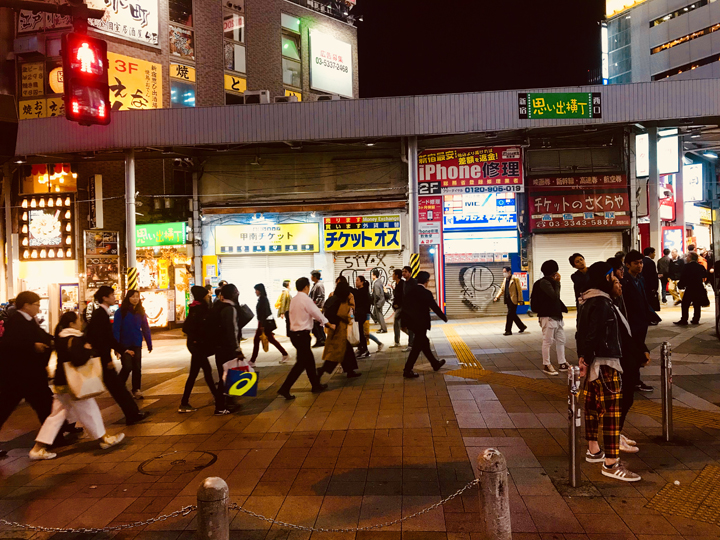
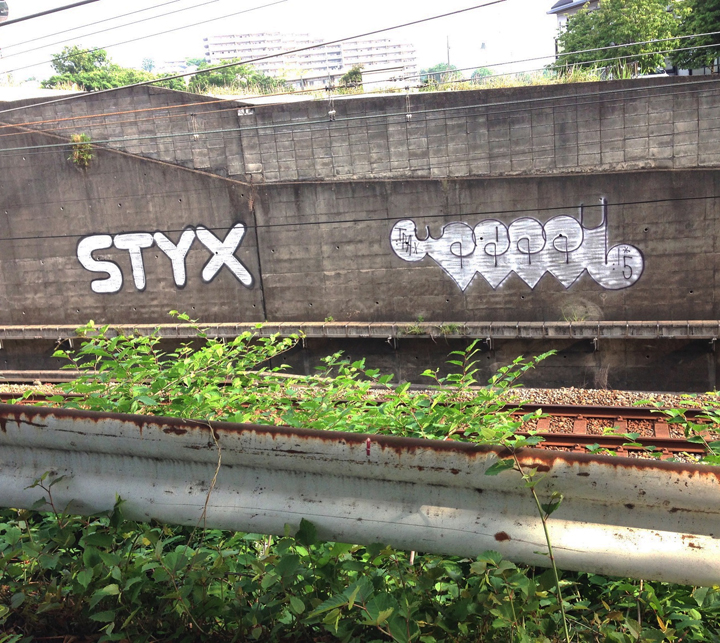
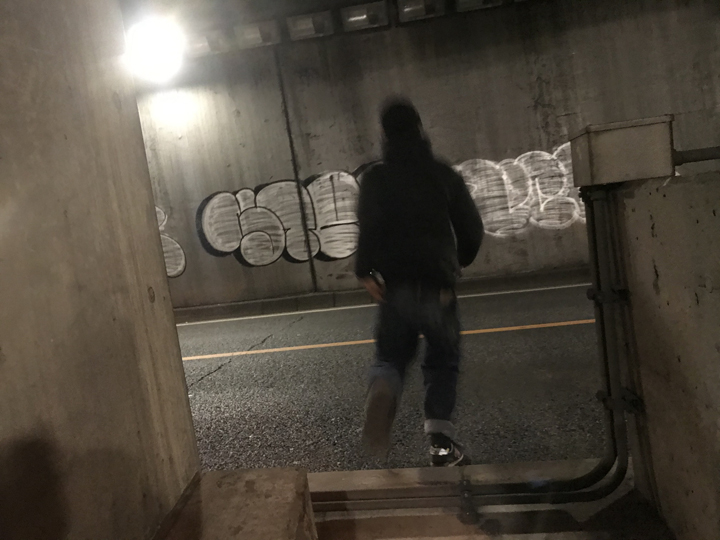
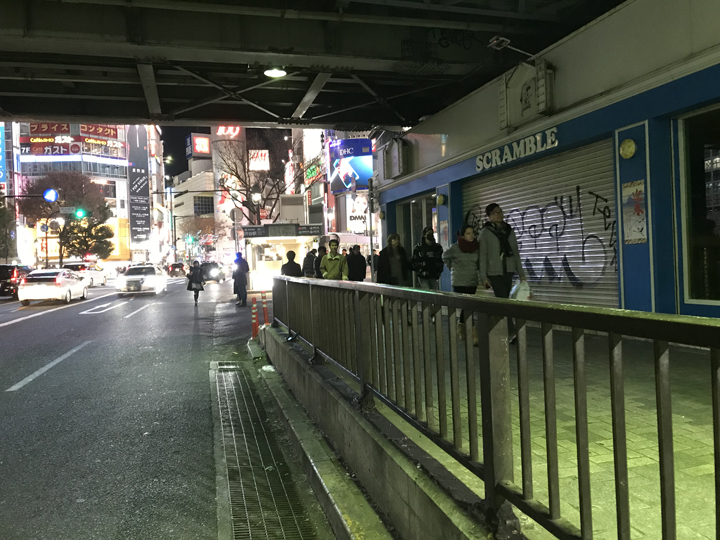
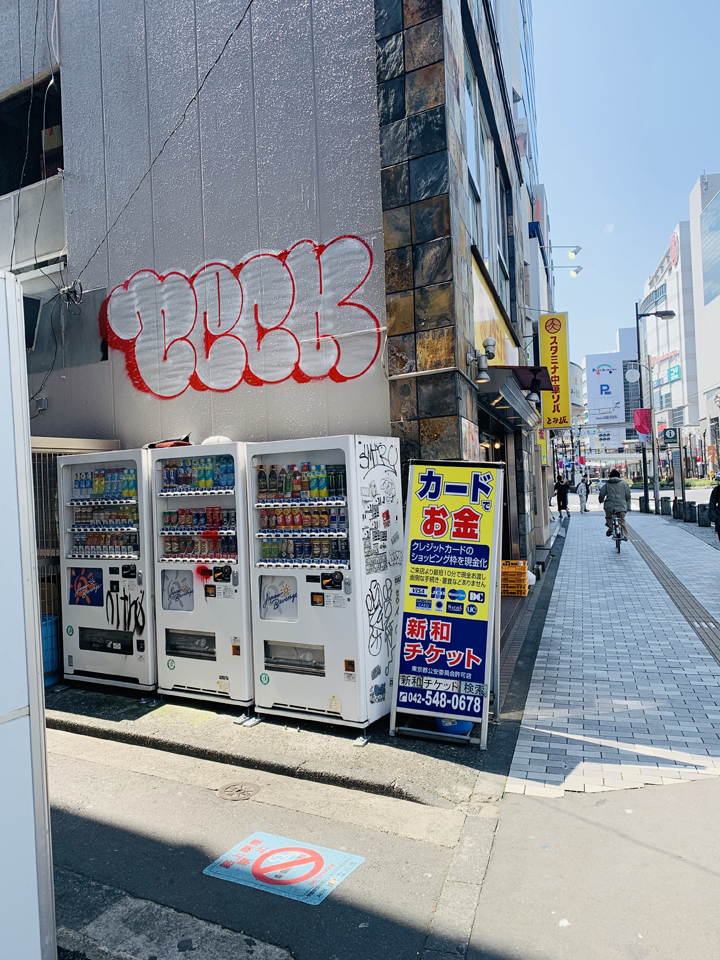
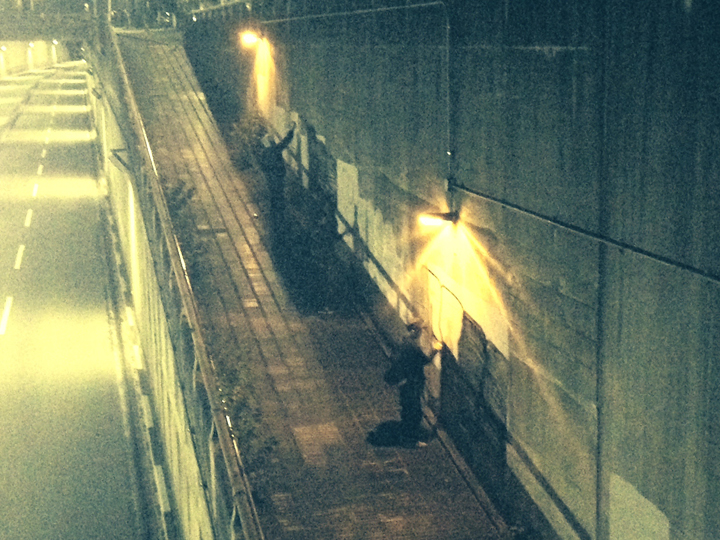
V: Do you think graffiti can coexist with the general public?
T: I think we are coexisting. If you look around, you see graffiti. The spots I aim for are of course the places where I hang out, but I also aim for places that are likely to remain as much as possible. Places that are visible, places that are likely to remain, places where I'm at, and places where I walk. It's as if I breathe. I think that the fact that they're not erased means that we can coexist. But I think there are a lot of people who don't like graffiti, so to those people, I would like to say... "I'm really sorry (laughs)."
V: That's similar to skating.
T: Exactly. I don't understand why skaters get reported just for pushing. I like bicycles, but I can practice wheelies at a skate spot while skaters are getting kicked out, and they don't give a shit. They get upset at skaters because it's "no skateboarding" and don't get upset about wheelies, which are way more dangerous than pushing. It simply means that they only live by those rules. They're not really seeing the nature of things. They don't get mad at BMX because there's only a sign that says "No Skateboarding." But the moment a "No BMX" sign is put up, the rules change. I don't live by those rules. So I don't know if graffiti is wrong or not...well, of course it's wrong (laughs). But I judge for myself. Whether it's really wrong or okay, whether it can coexist or not, it depends on each person's rules. I think people who don't like skating don't like it because there are rules that say it's forbidden. I'd like people to get rid of those rules and make a new judgment for themselves.
V: What are some of the most memorable moments while bombing?
T: Well, I was out in the street by myself and someone walked up to me. He knew what I was doing, and he said, "I really dig what you do." I was surprised to know there are people like that. Also, when I was in Nagoya, this scary looking guy came up to me and said, "I really like graffiti. I'll be on the lookout." The scary guy stood in the corner with his arms folded and made sure no one's looking. When I was finished, he told me that he's a writer too. That person was "Sharaku". He was the guy who got caught in 2006 for scratching on a JR touch panel. It was all over the news. The compensation was in the hundreds of millions. So "Sharaku" helped me out. Things happen on the streets that are far beyond expectations.
V: In the same way that there are two types of skating, street and contest, I think there are two types of graffiti, street and museum. What's your take on that?
T: Yes. In the case of art museums though, it's not graffiti. There's a big difference between someone who does graffiti-like work in a museum and says, "I'm doing graffiti," and someone who respects graffiti and chooses to make money from it. I think there's a big difference between them. I don't have the skills to do that anyways, and I'm not interested. I'm only interested in the street.
V: You really have to be careful when you're in the street.
T: That's right. I mean, we're causing trouble for people to a degree no matter what. When I was bombing with a writer named STEP, he threw a spray can into the bush far away while we were leaving. I don't usually get angry, but at that time I lost my temper... We looked for it together, picked it up and went home. No one but a writer would throw away a spray can. If you see a spray can on the street, it's definitely a graffiti writer. He's just causing trouble. I was like, "Don't do anything unnecessary!" It's the same with skaters. They're skating and hanging out on the streets and scaring people to a certain degree, so at least don't leave trash all over the place. That's wack. There's no need to bother people all the time (laughs). Even at the local skate park, it's the people who skate there all the time who collect the trash at the end. People like that take care of their spots. Even in graffiti, there are people who are just starting out that ruin the wall and throw cans... They litter, and they show their spots on social media. I hate it when people think that's what writers do. STEP is also a skater, so if he does something like that again, you should all be mad at him (laughs).
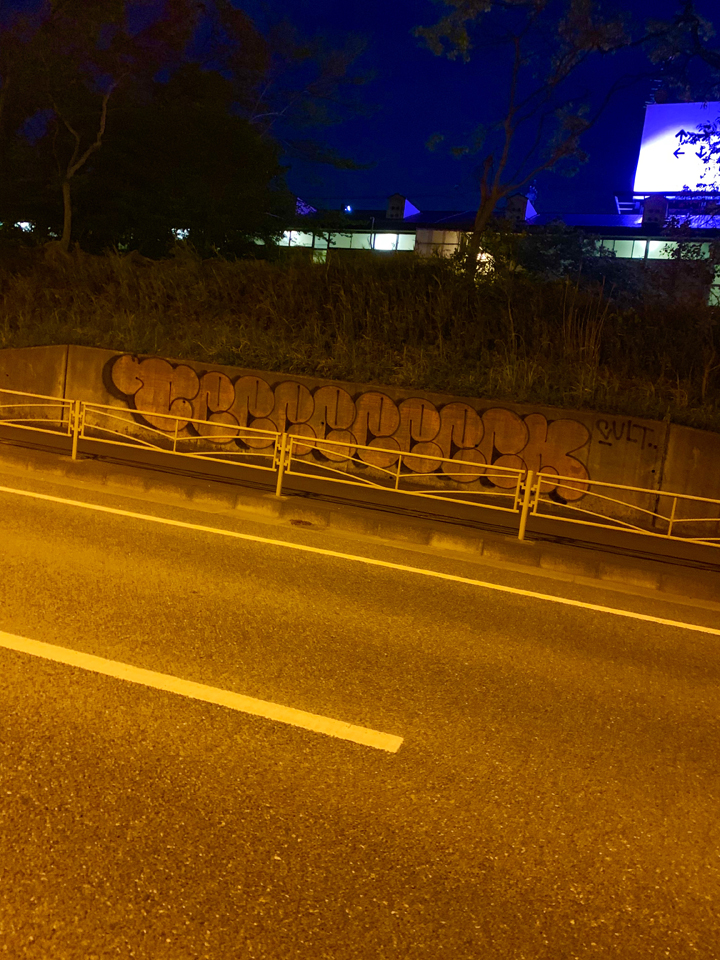
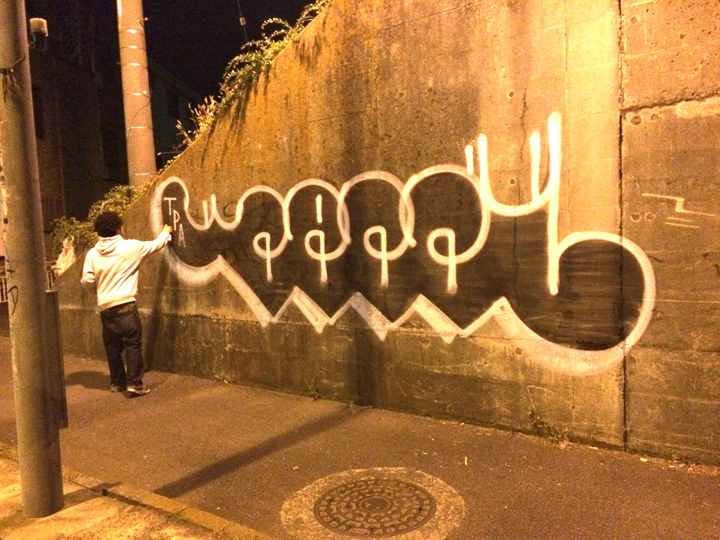
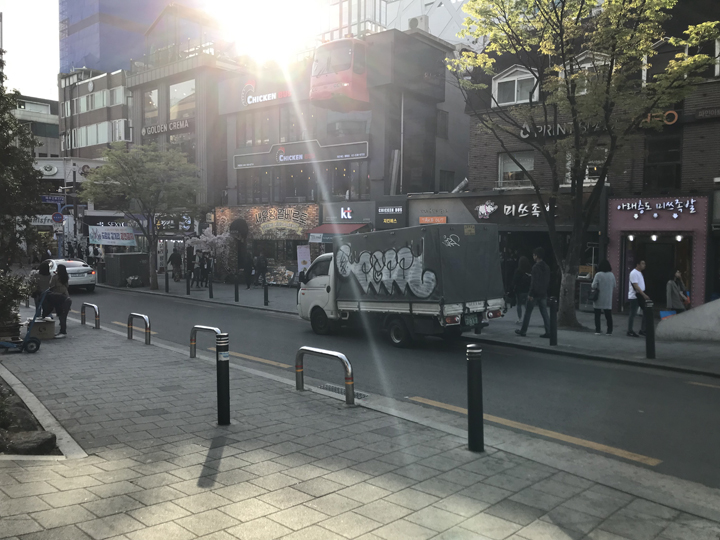

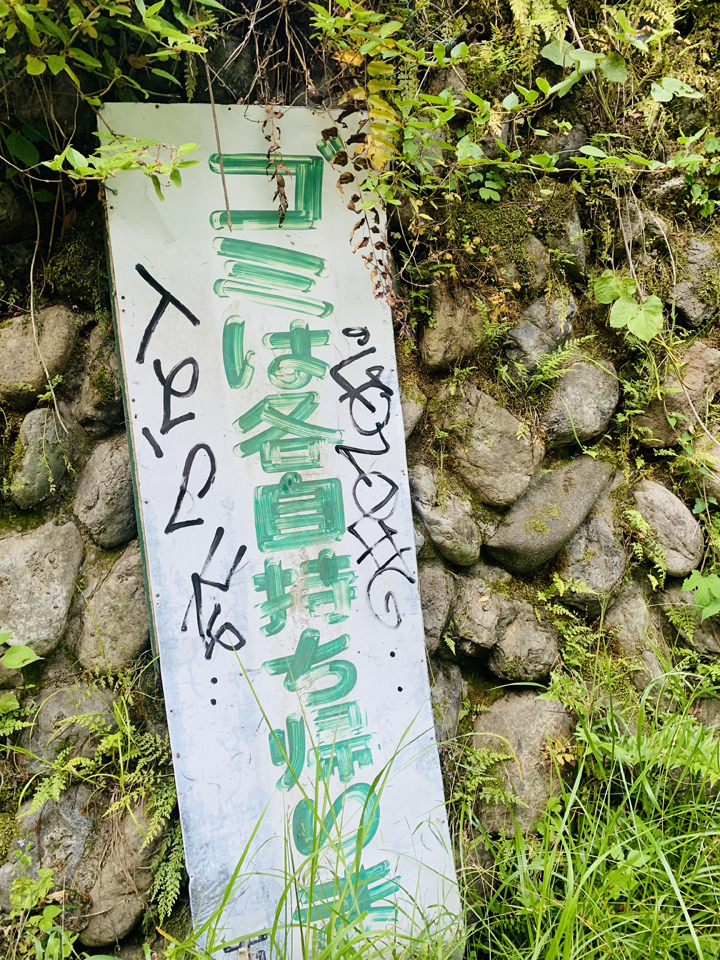
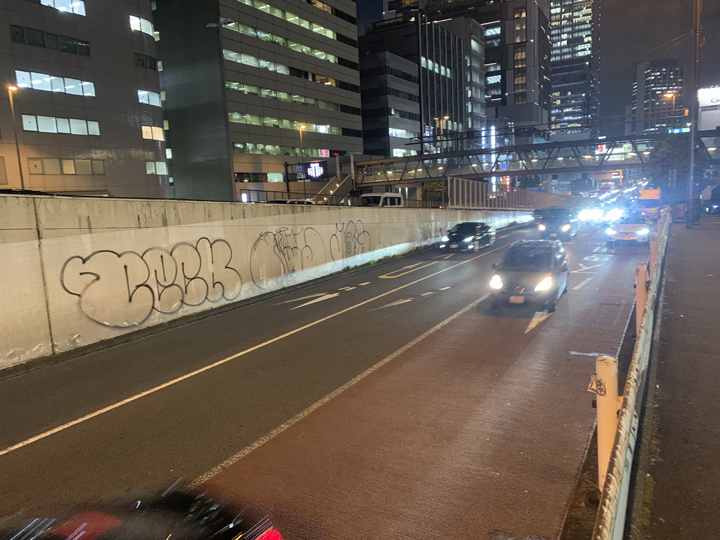
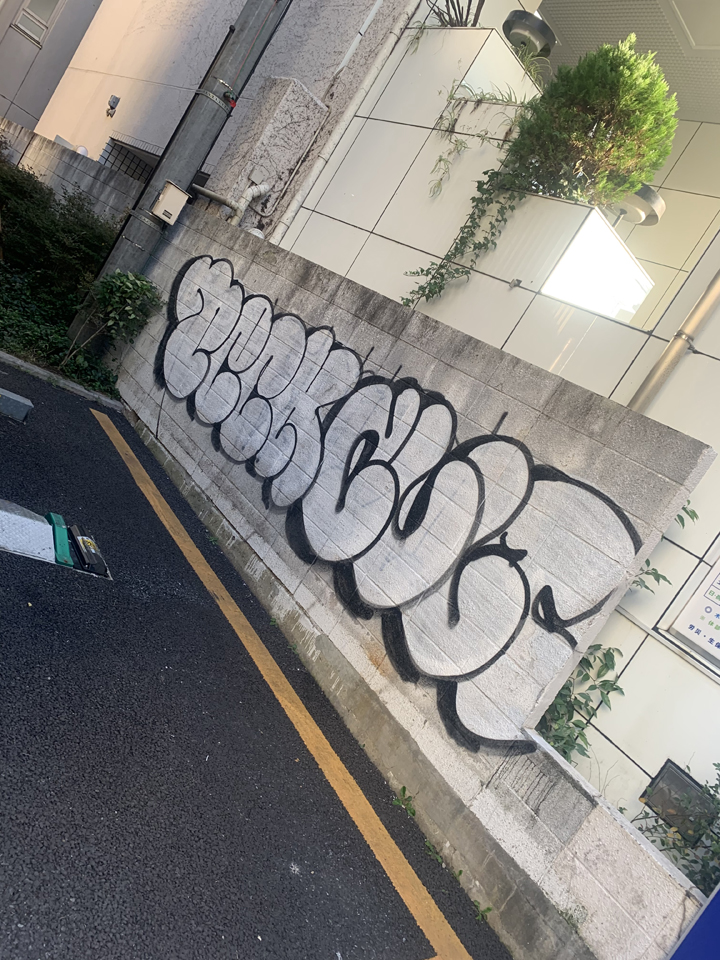
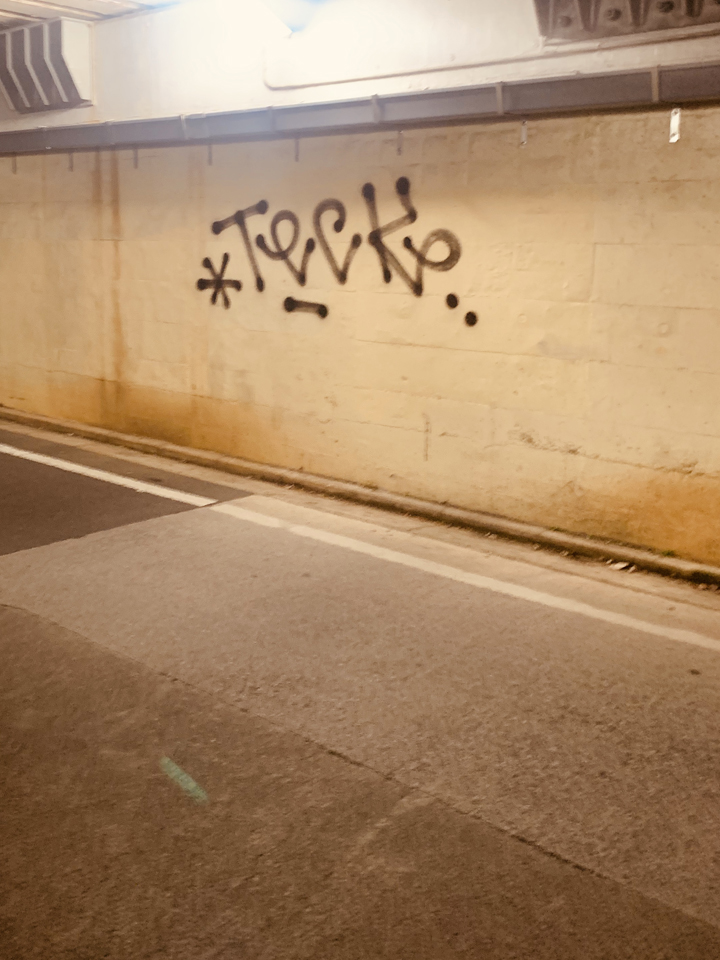
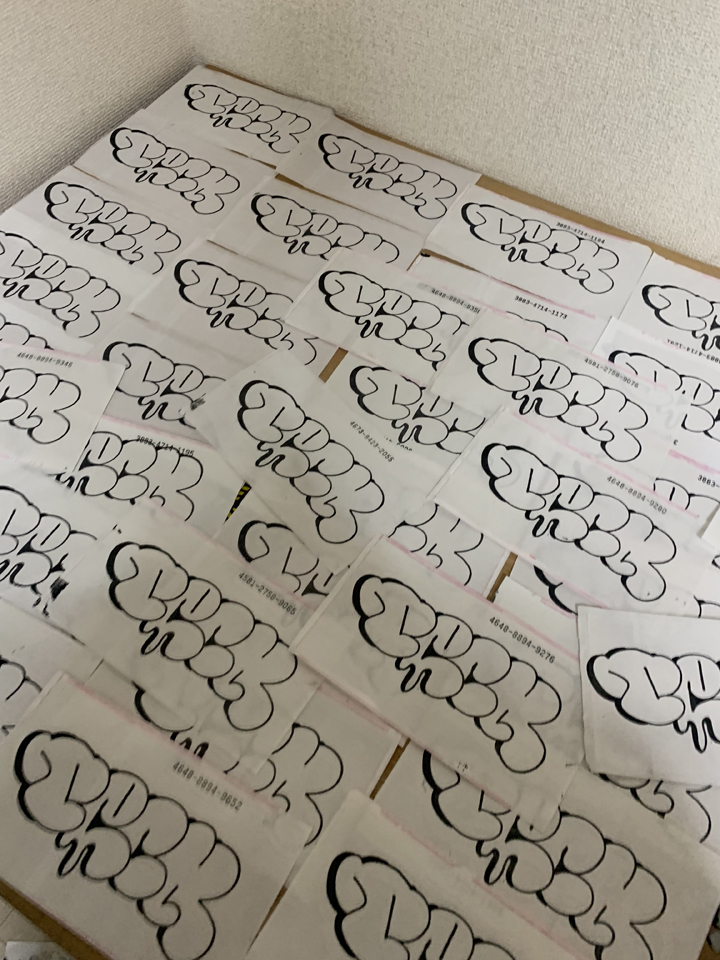
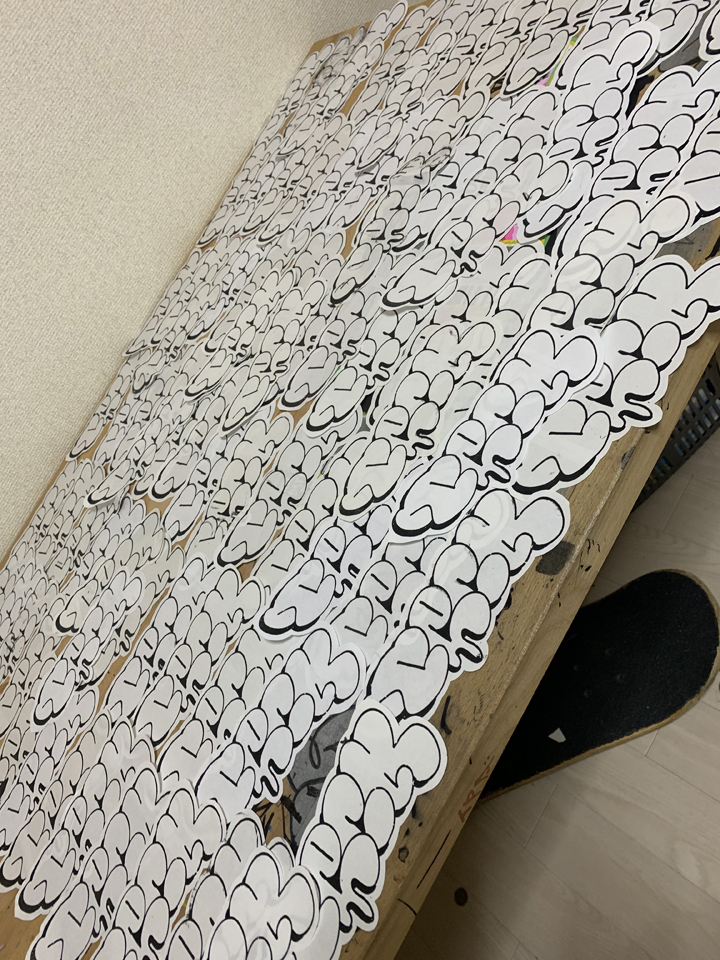
V: (laughs). Lastly, what are your future plans?
T: My style is to bomb according to my mood, so I'll do it when I feel like it. I'll hang out wherever I want and bomb wherever I want. As I said before, the basic premise of graffiti is to cause trouble to a degree. So I'd like to continue my work in a way that causes as little trouble as possible.
TECK
TECK is a graffiti writer who first encountered graffiti when he was in junior high school and continues to bomb the streets in and outside Japan. He was formerly a skater and gamer.








